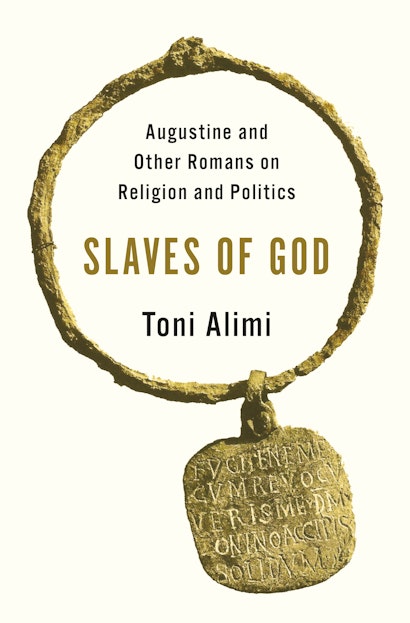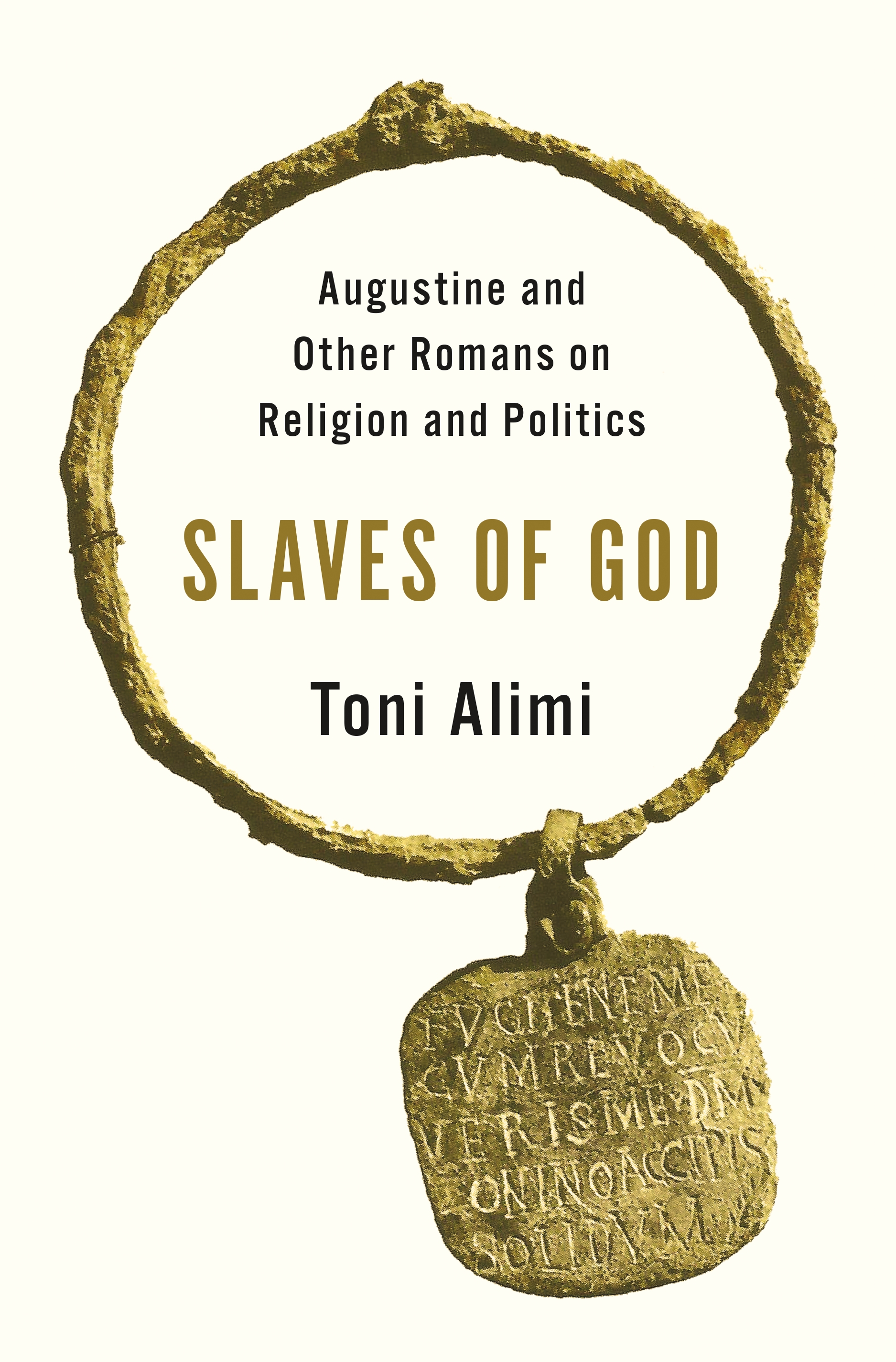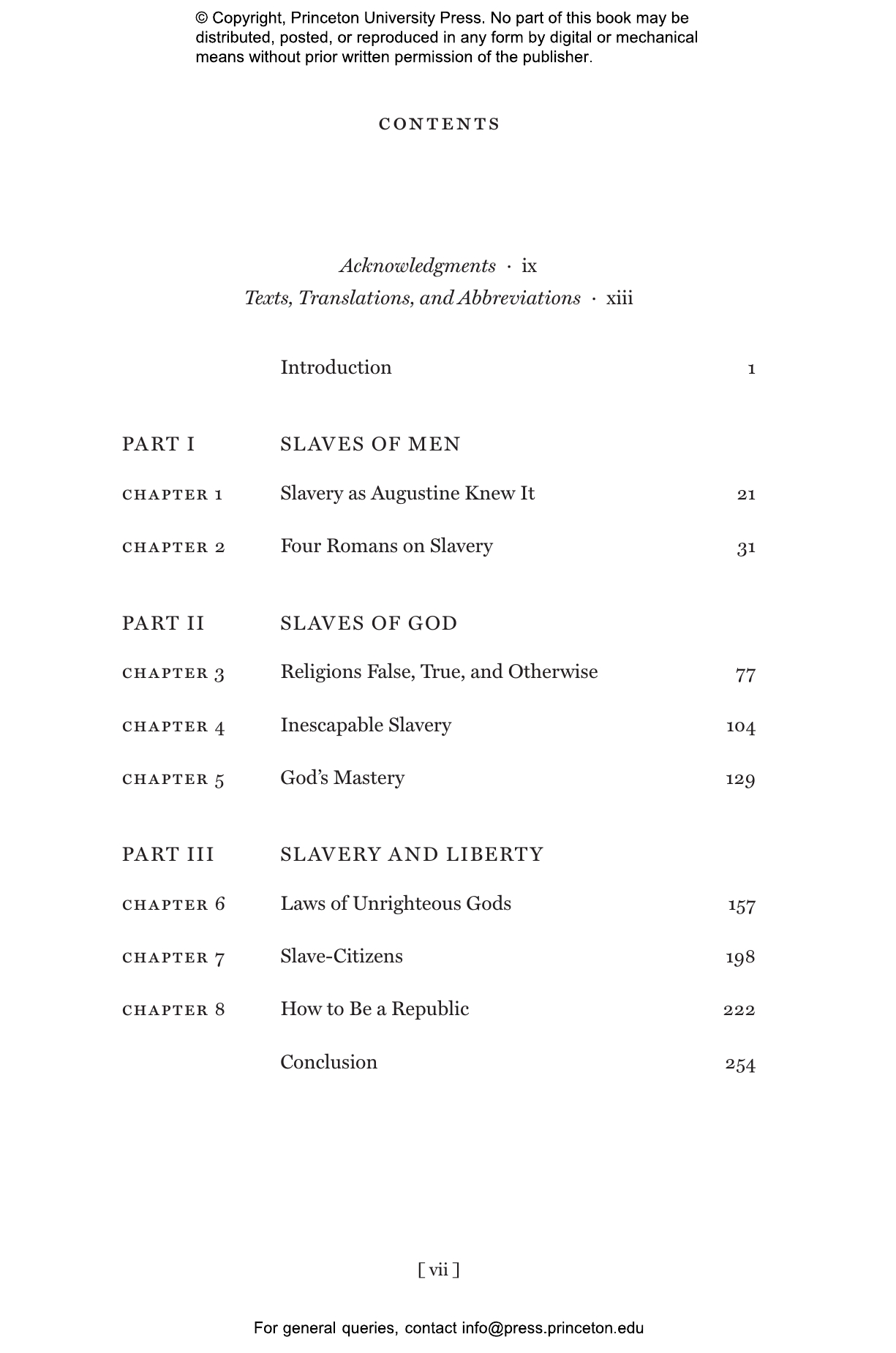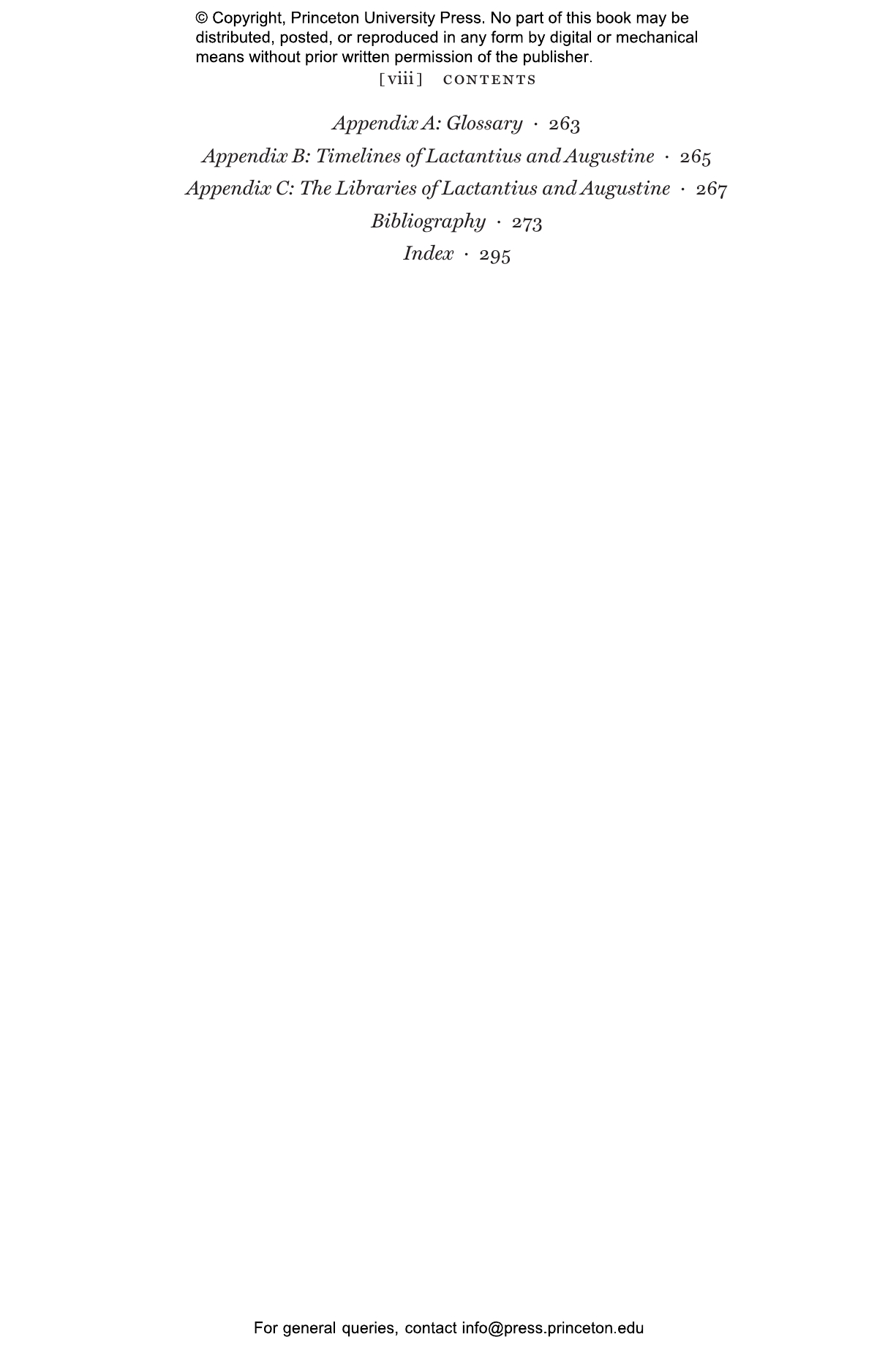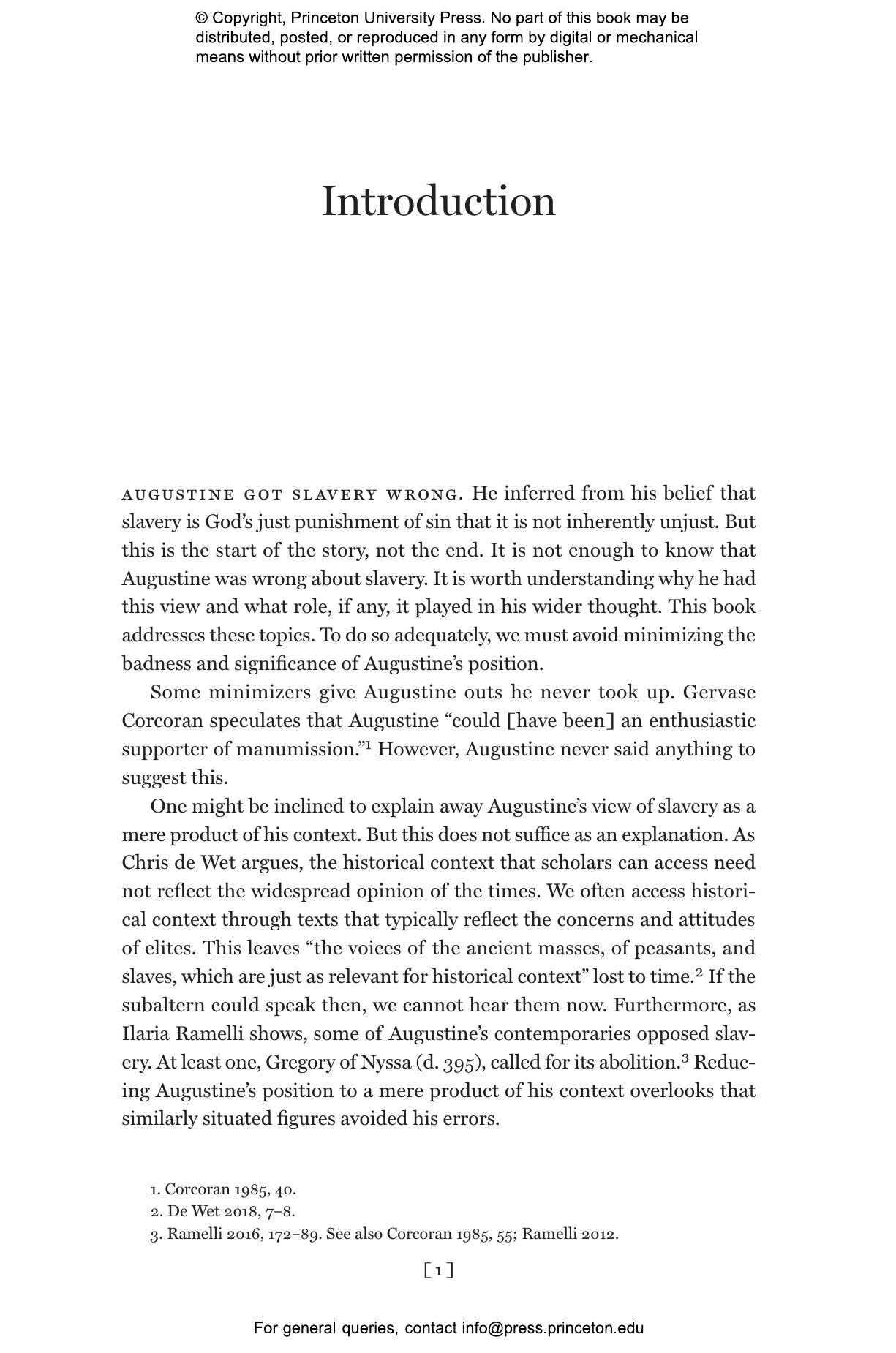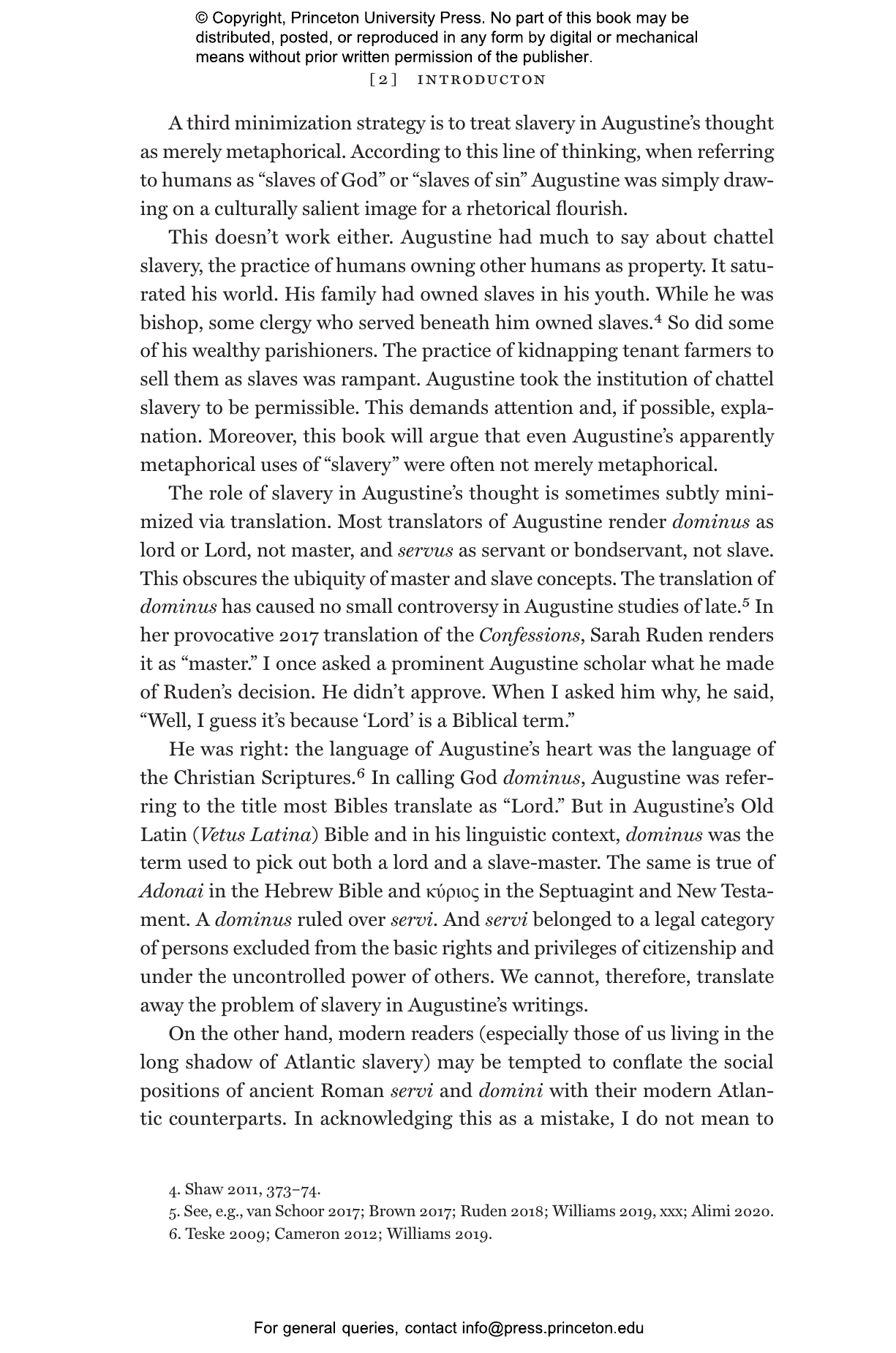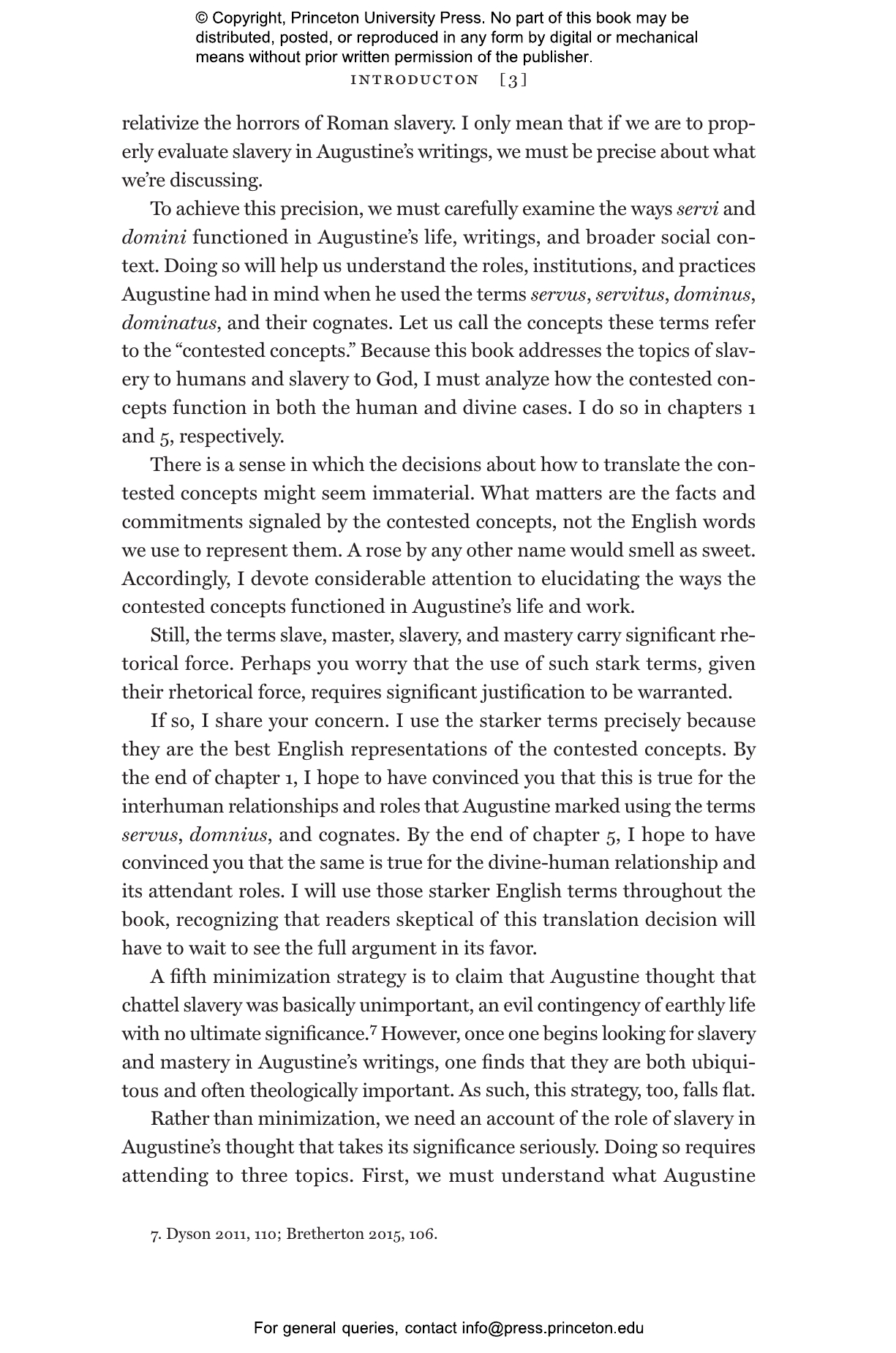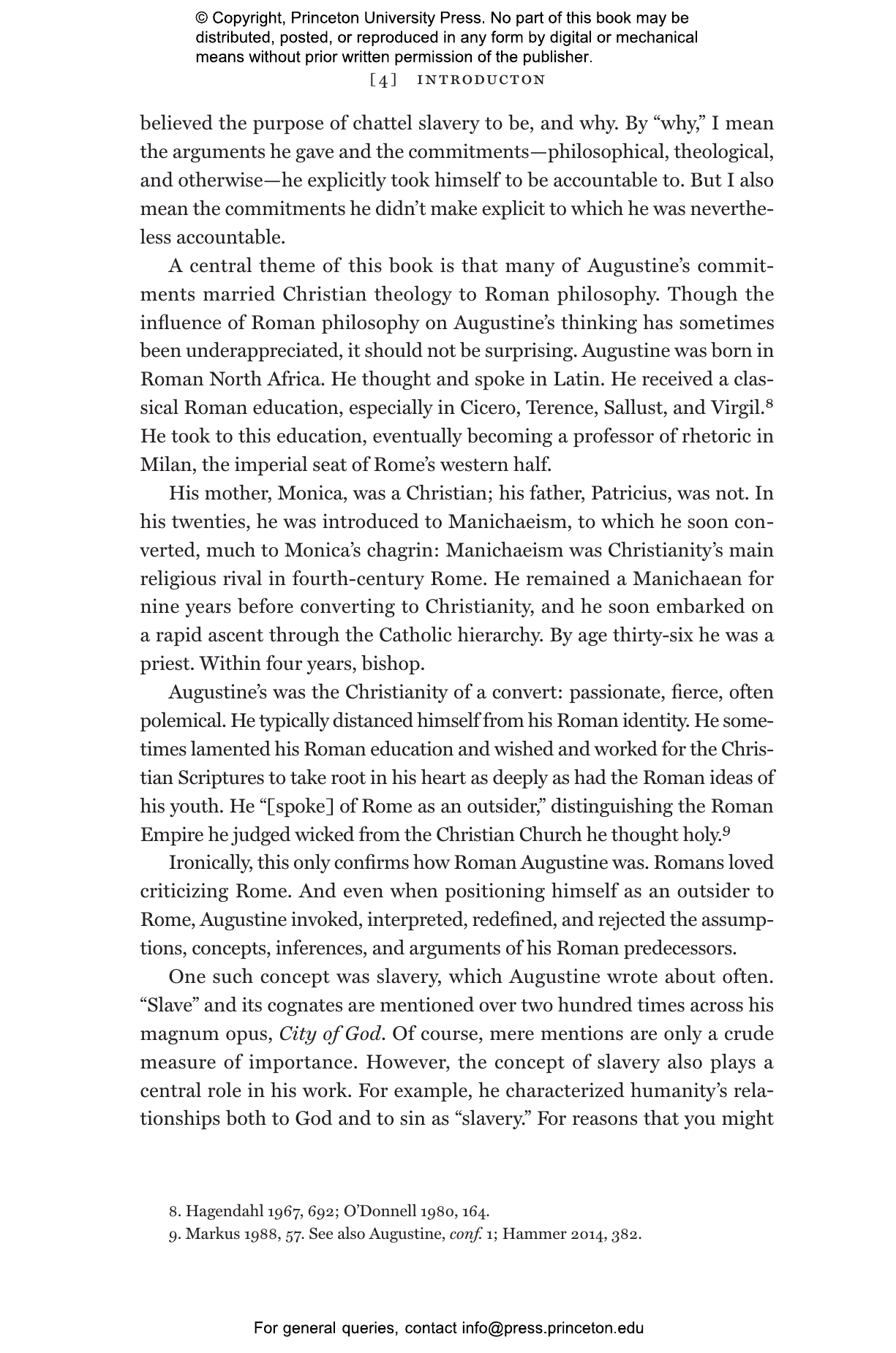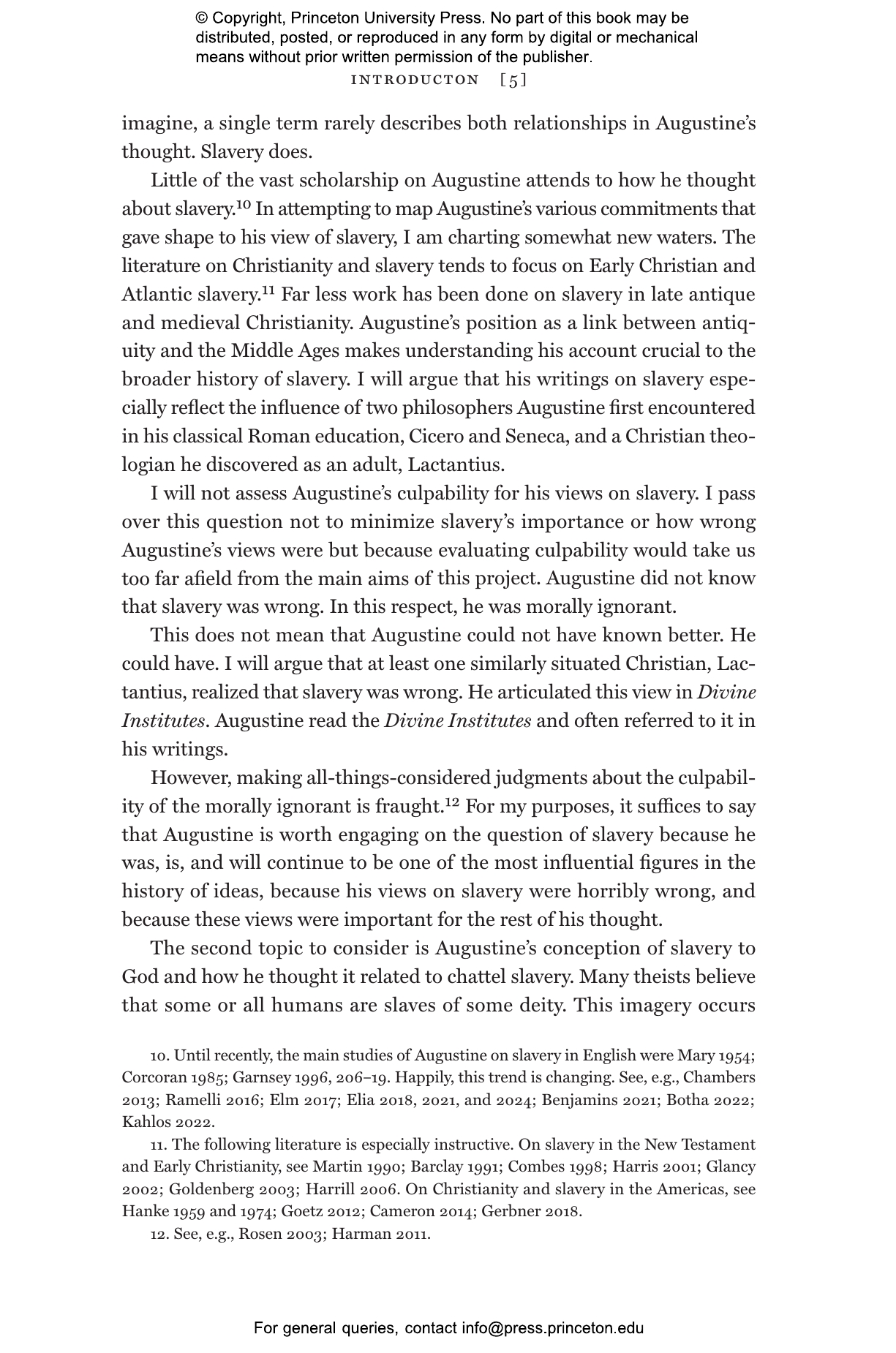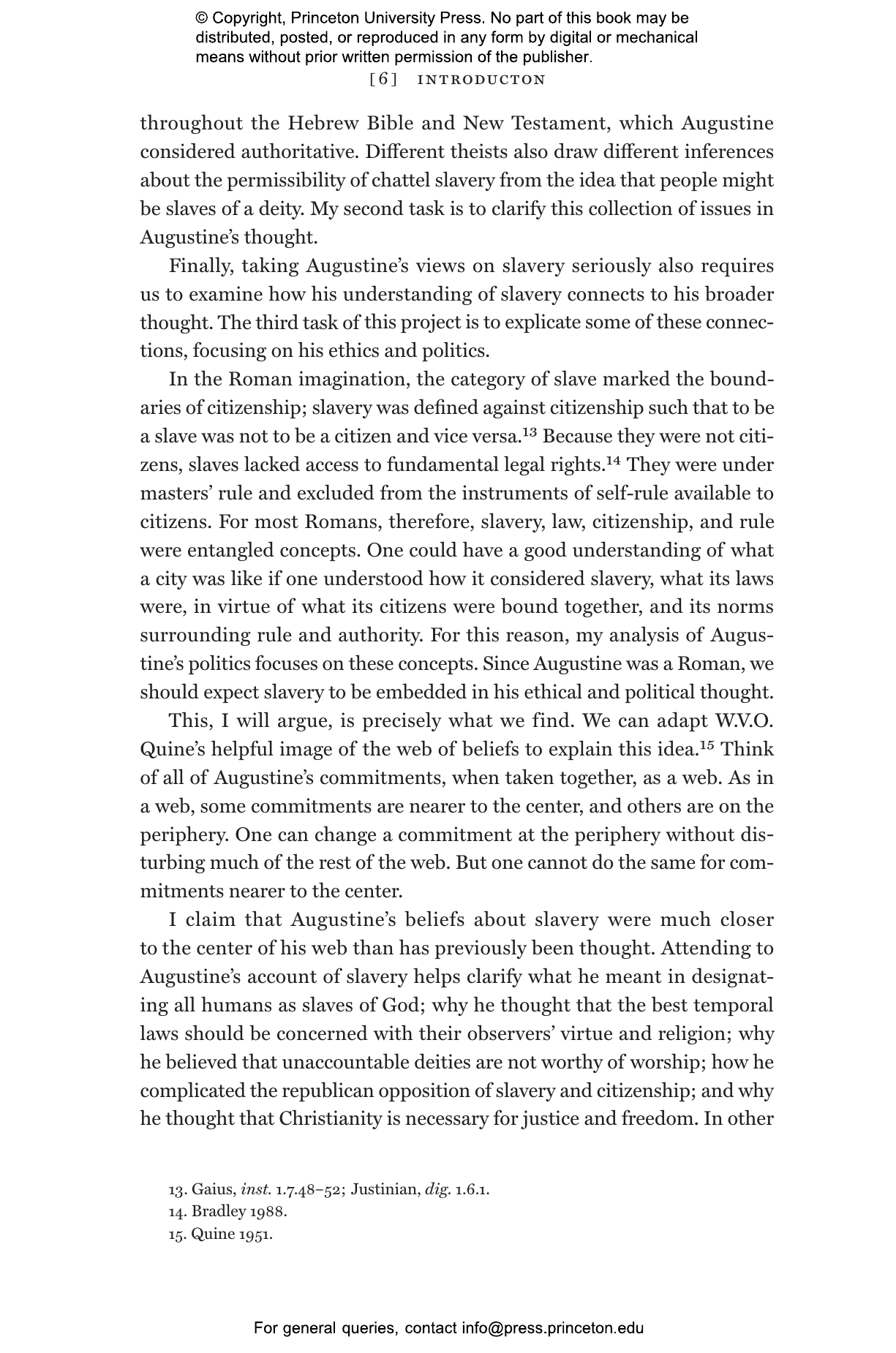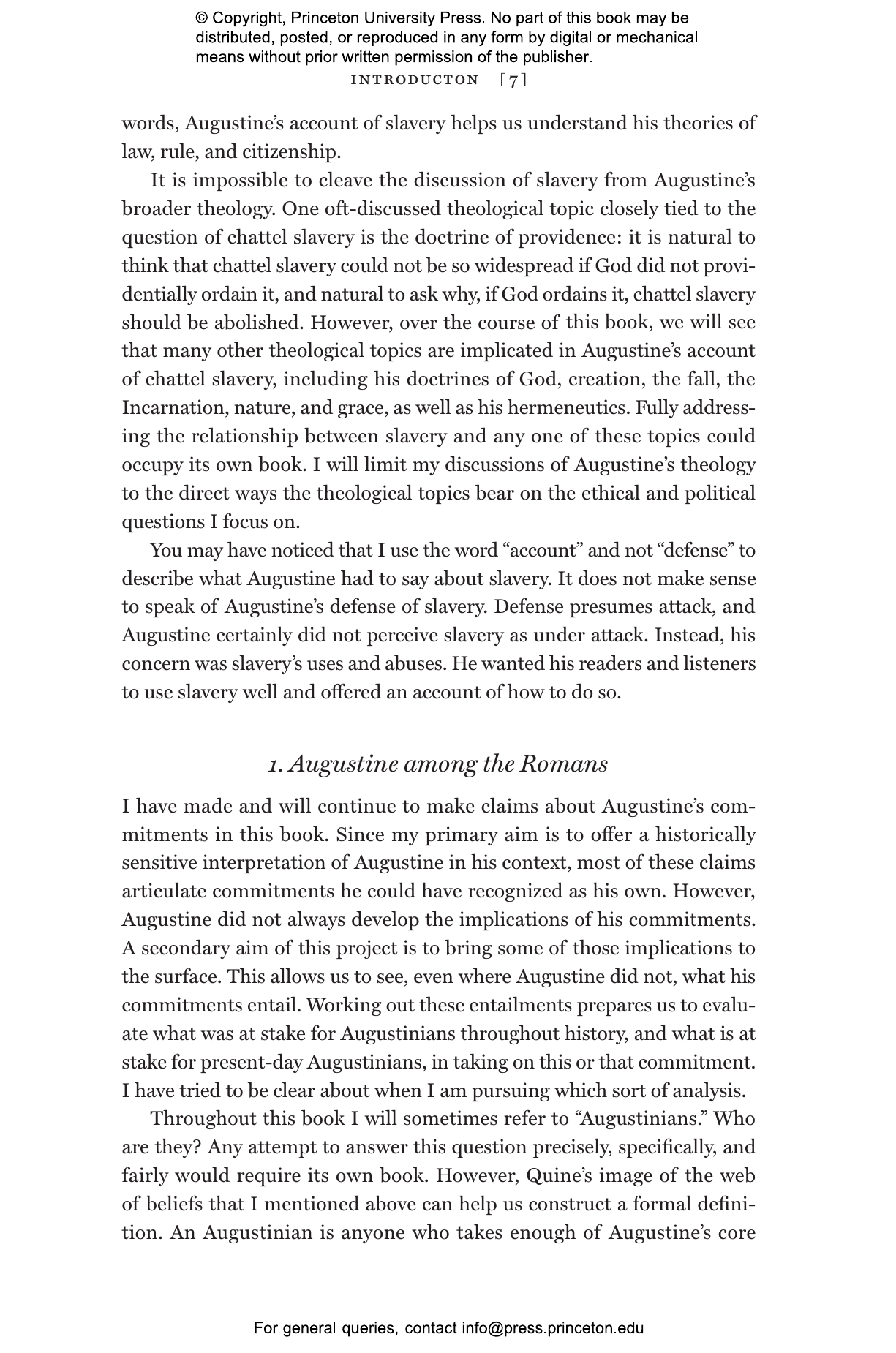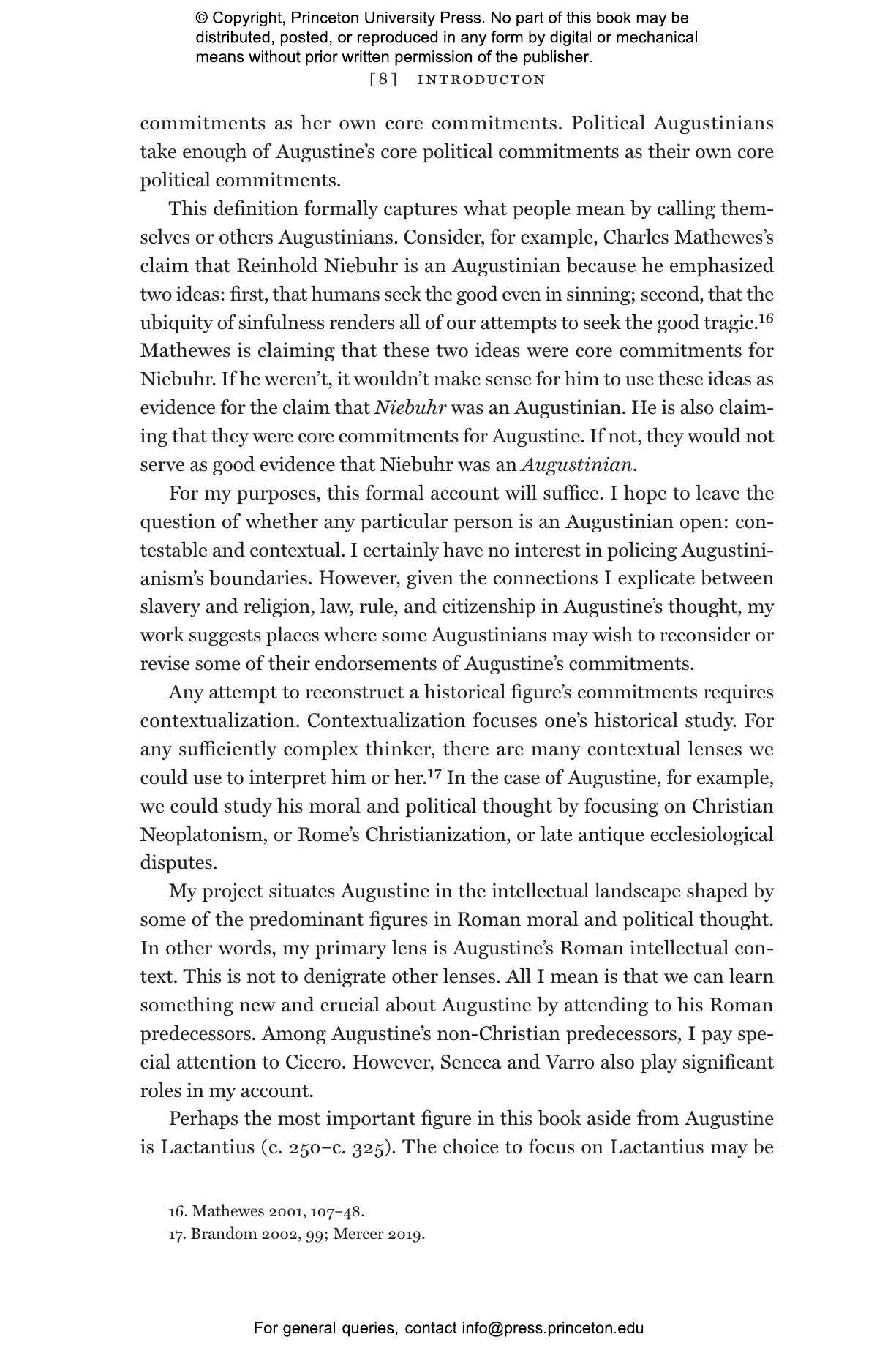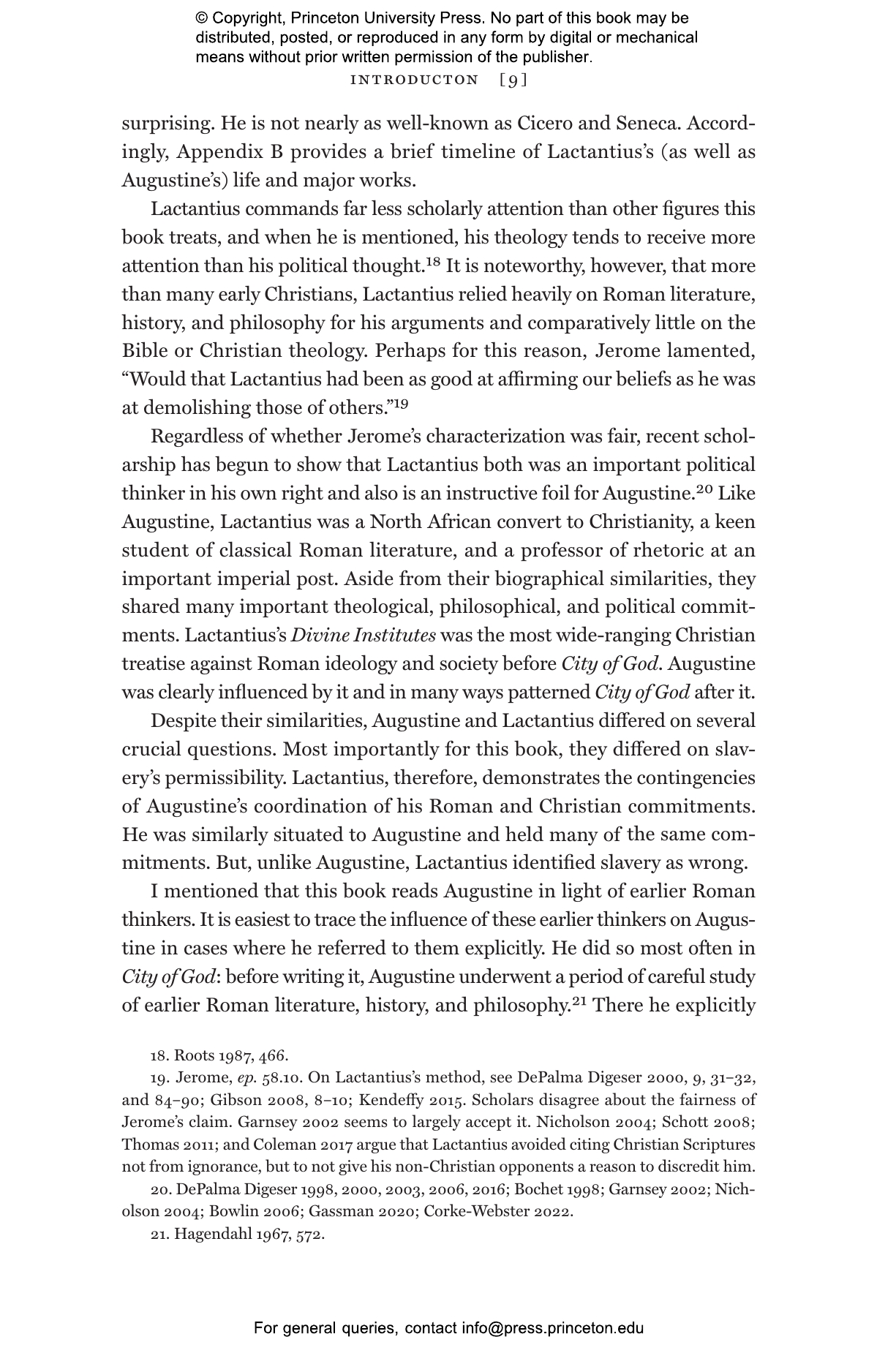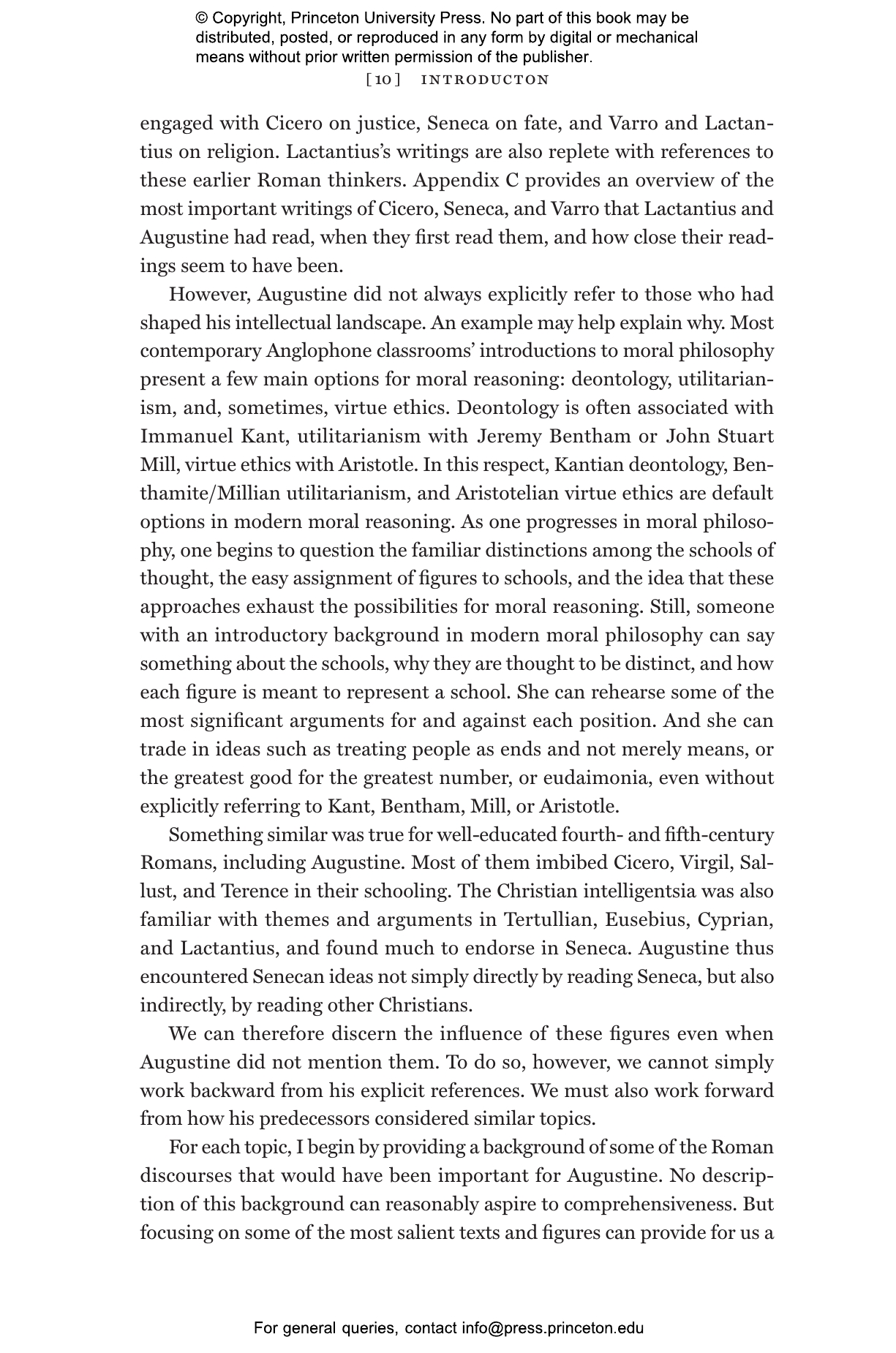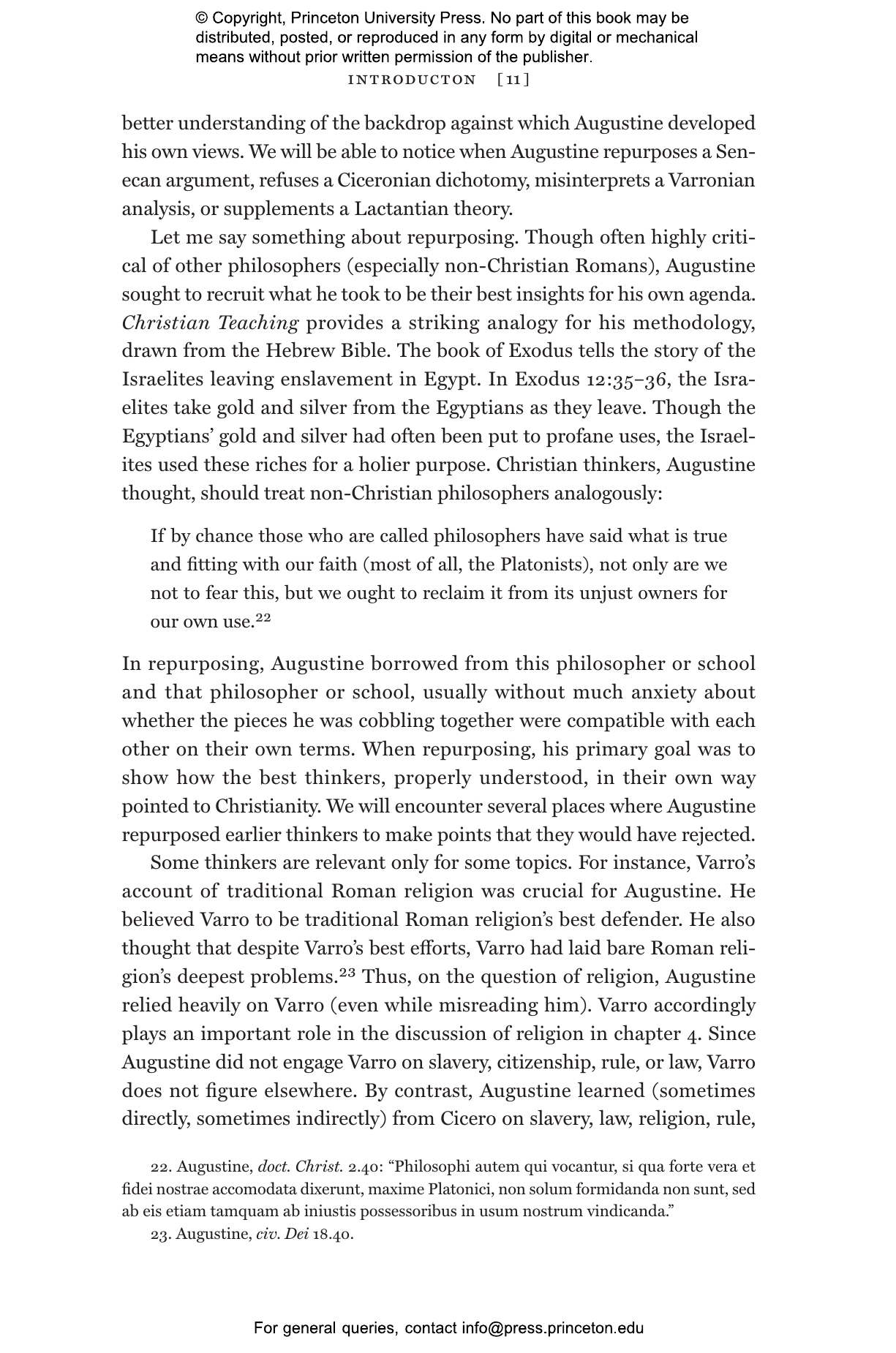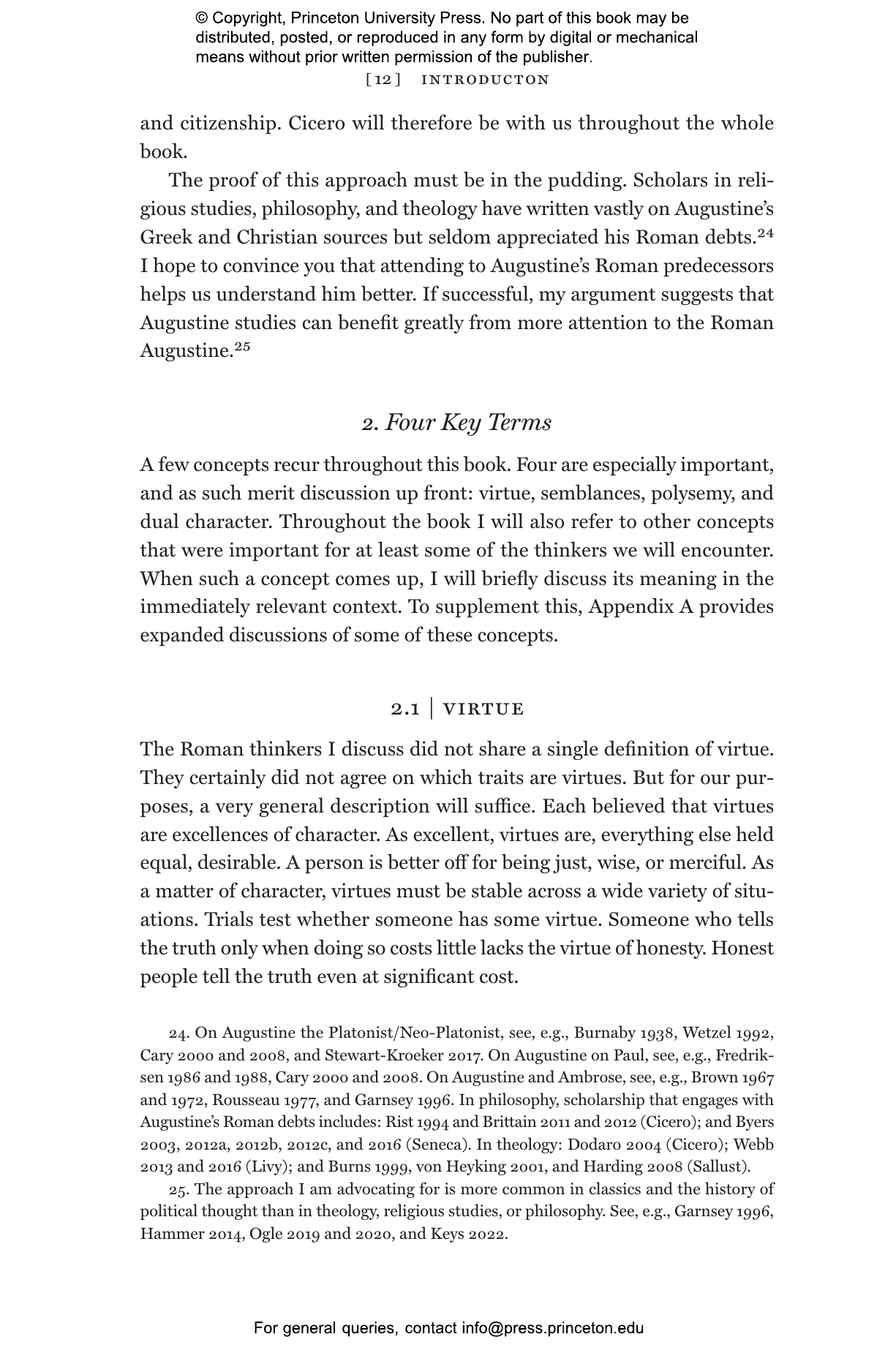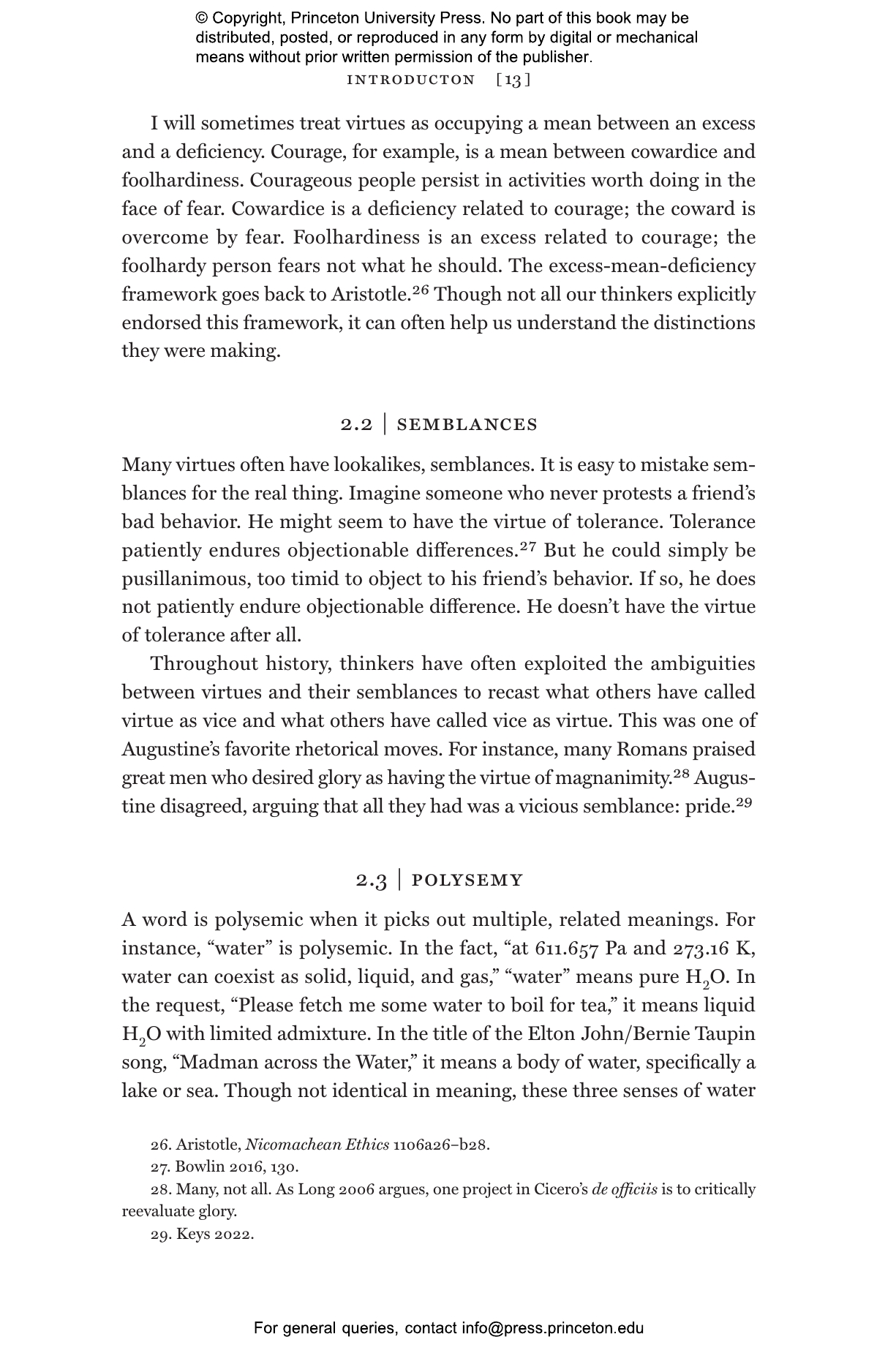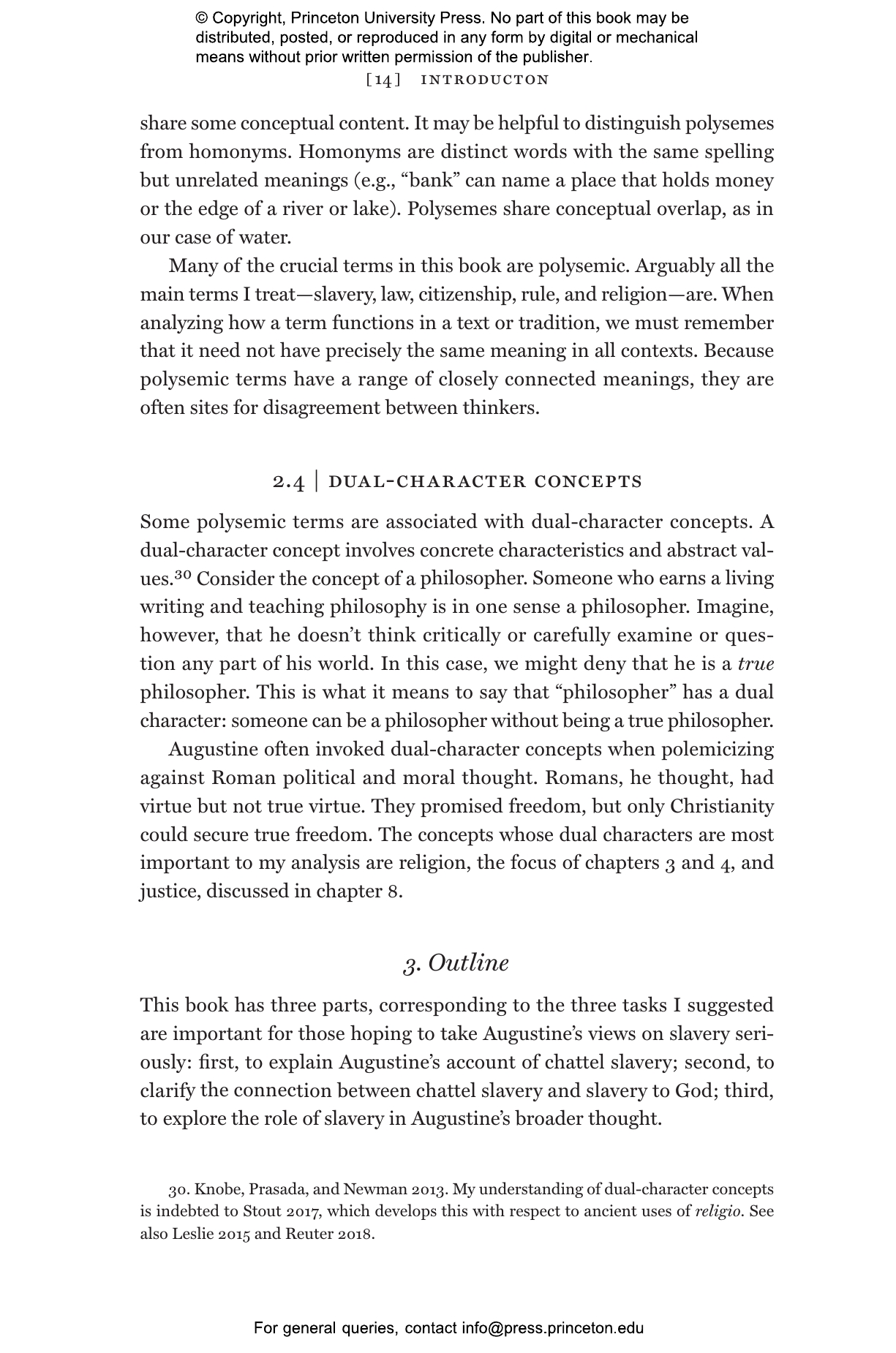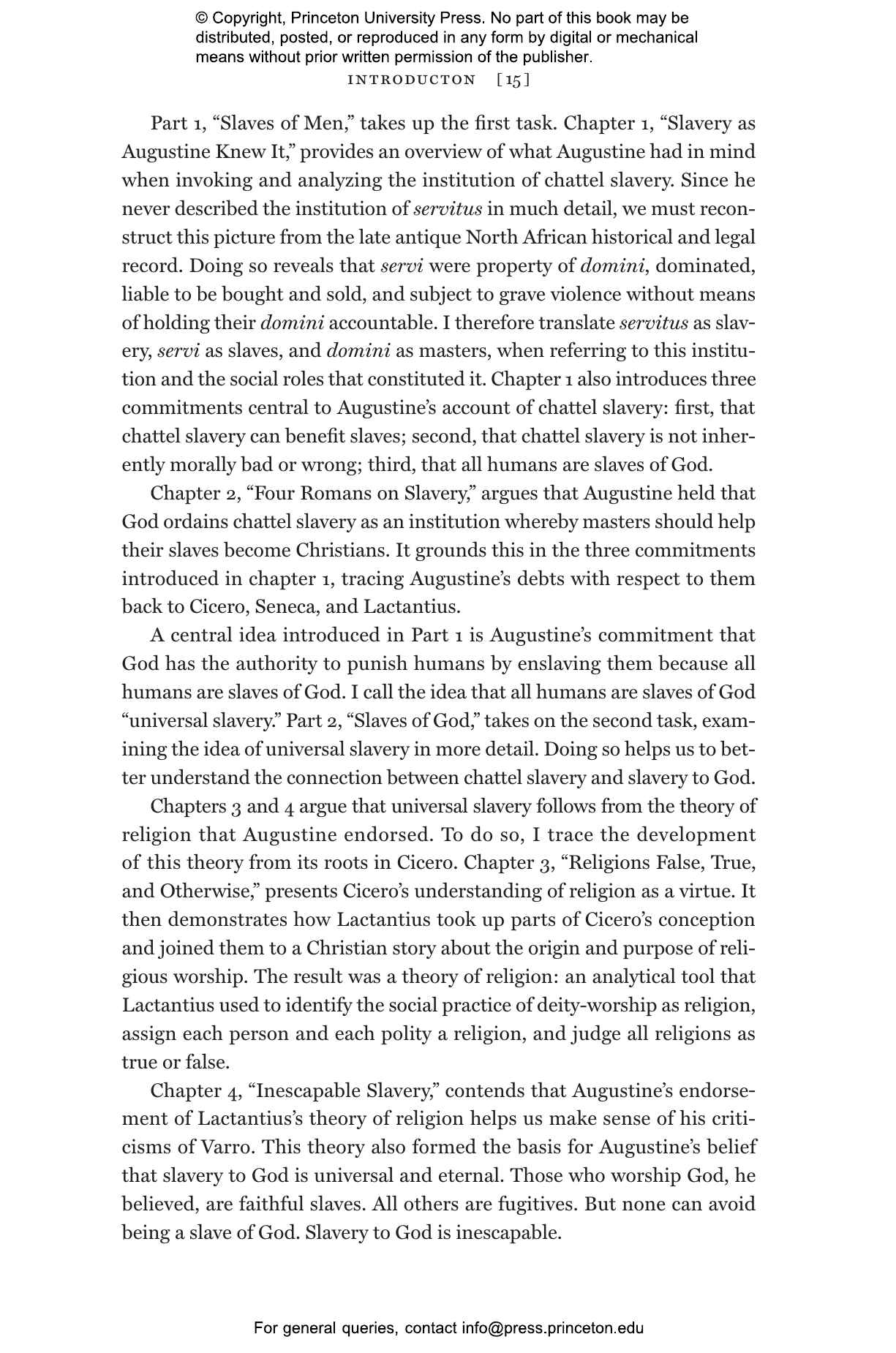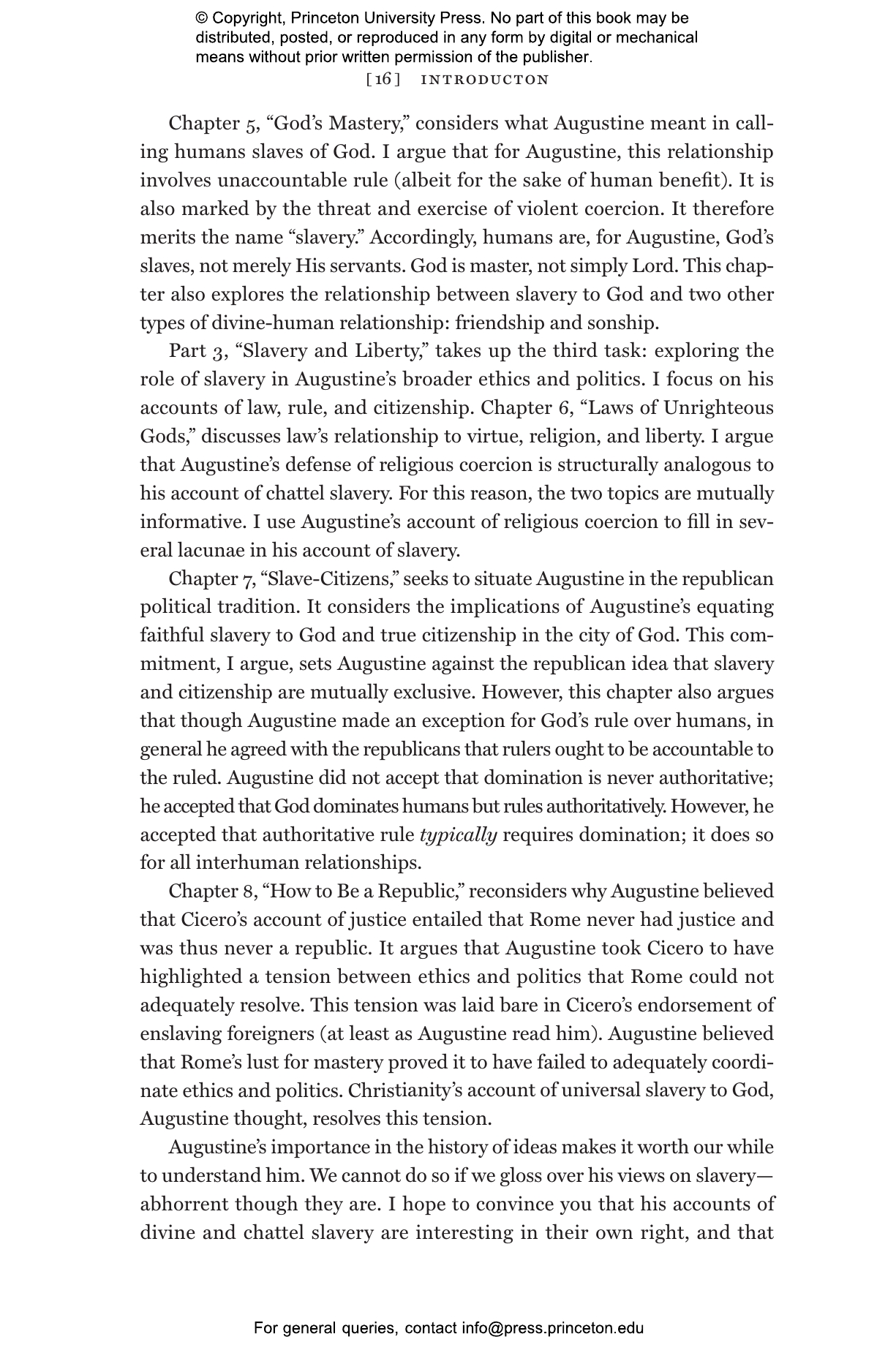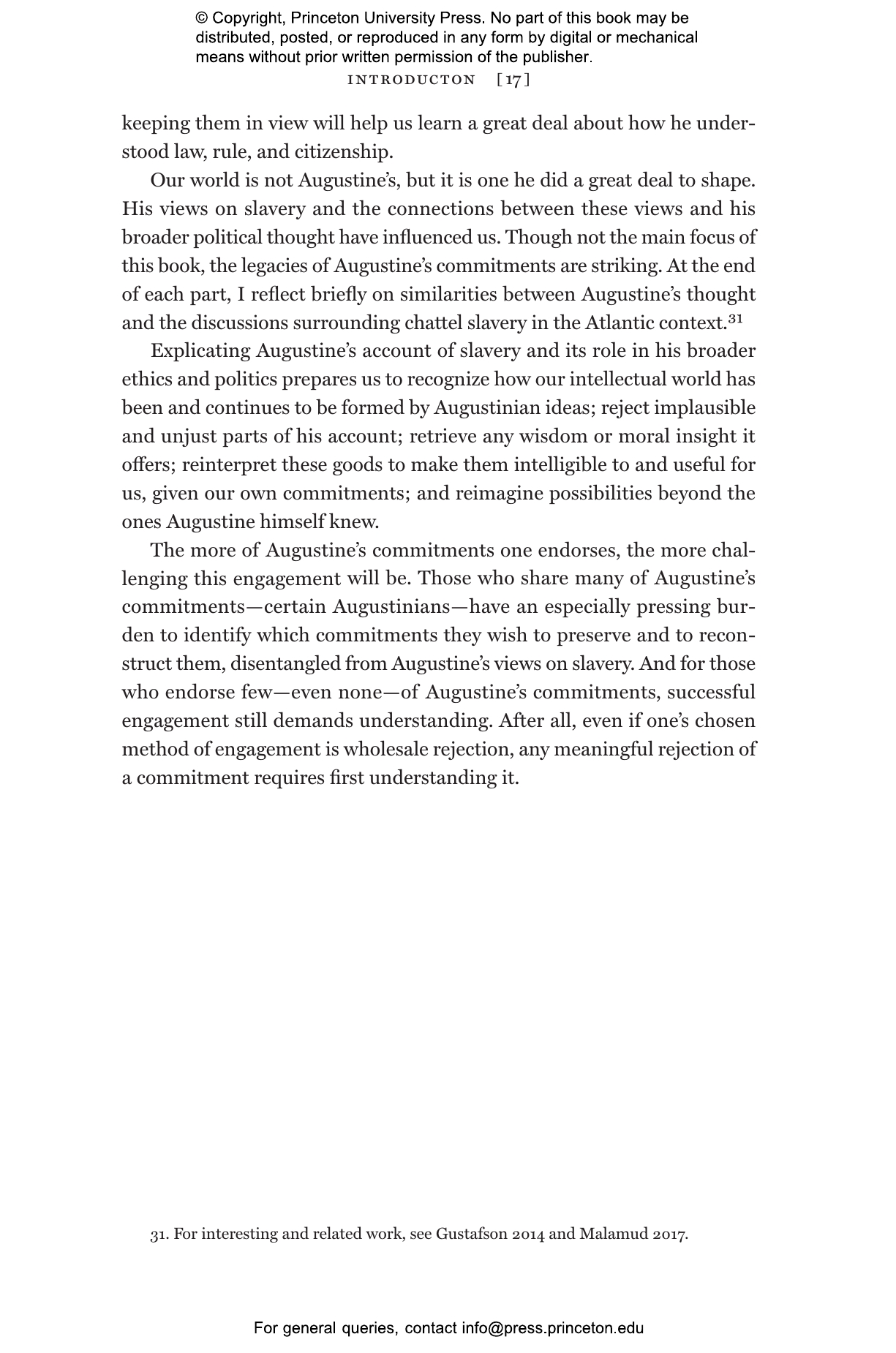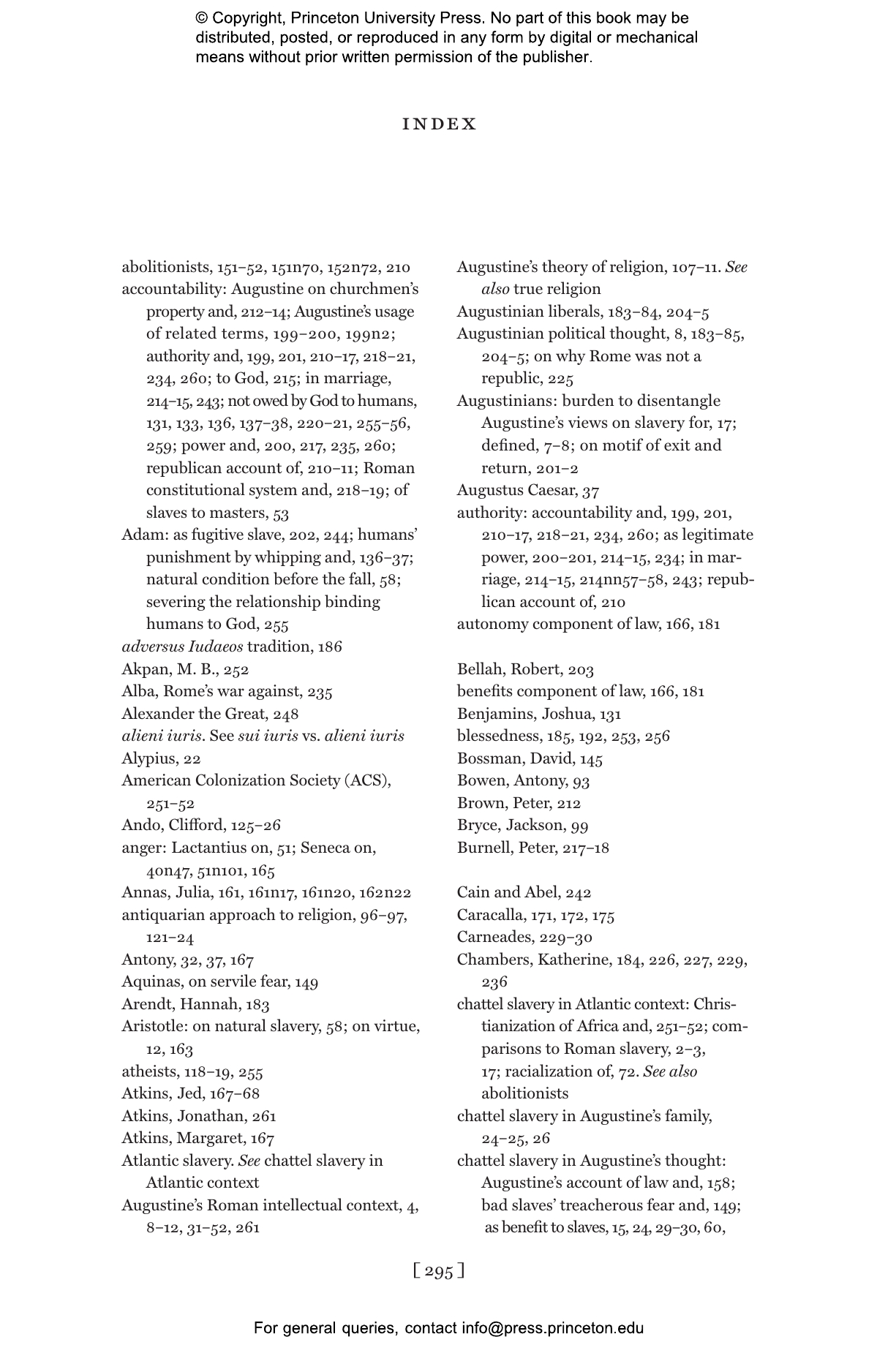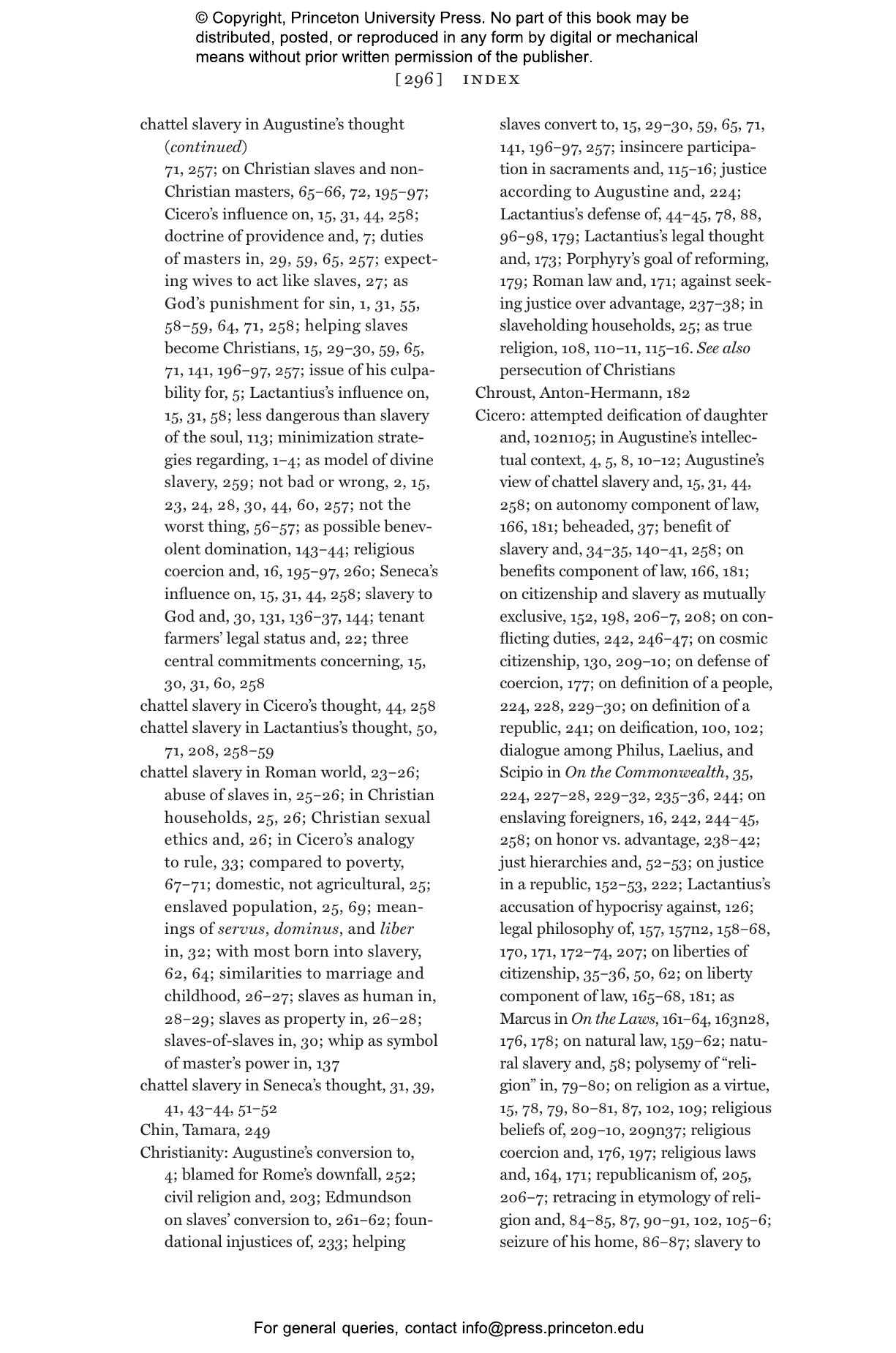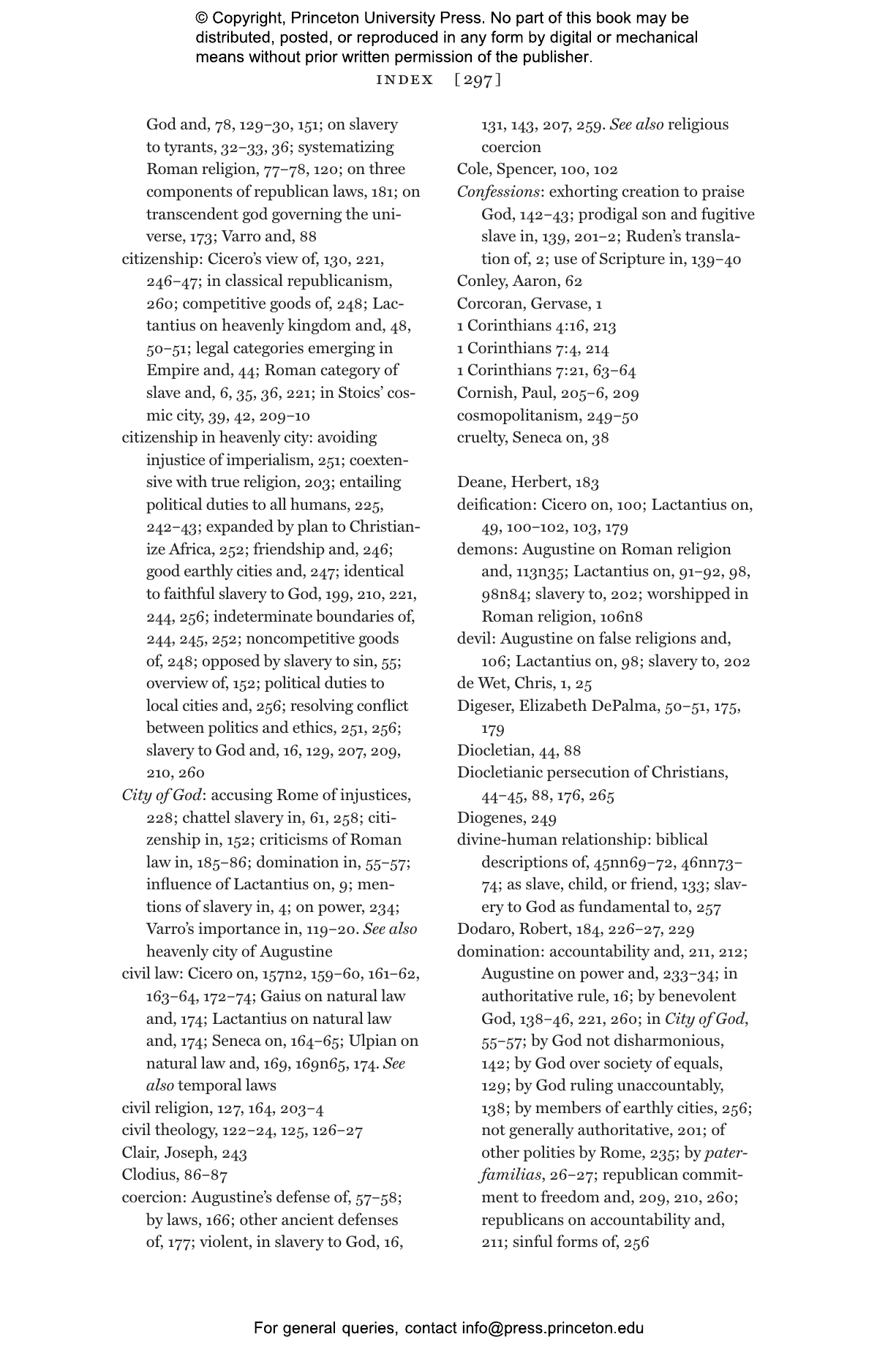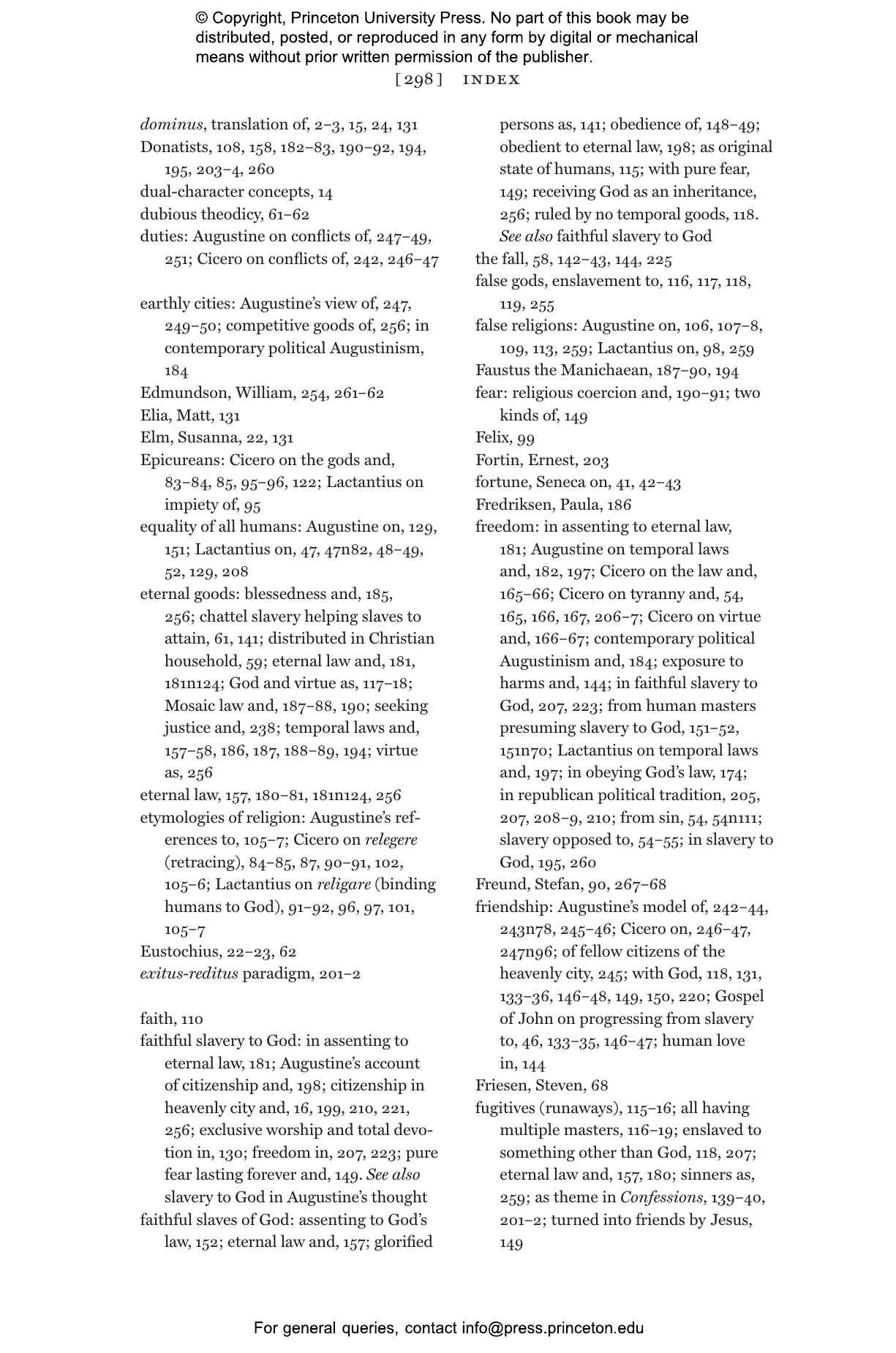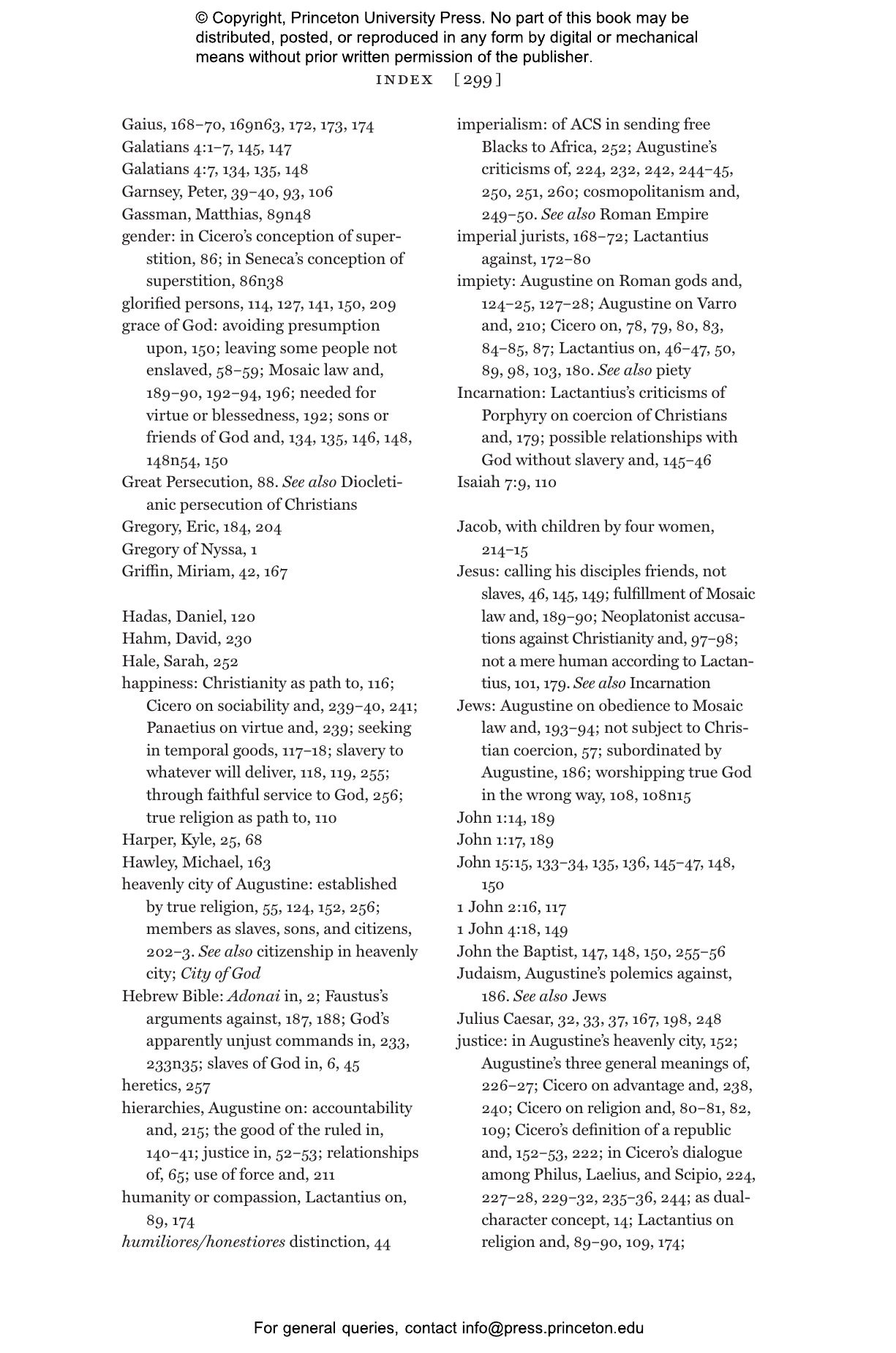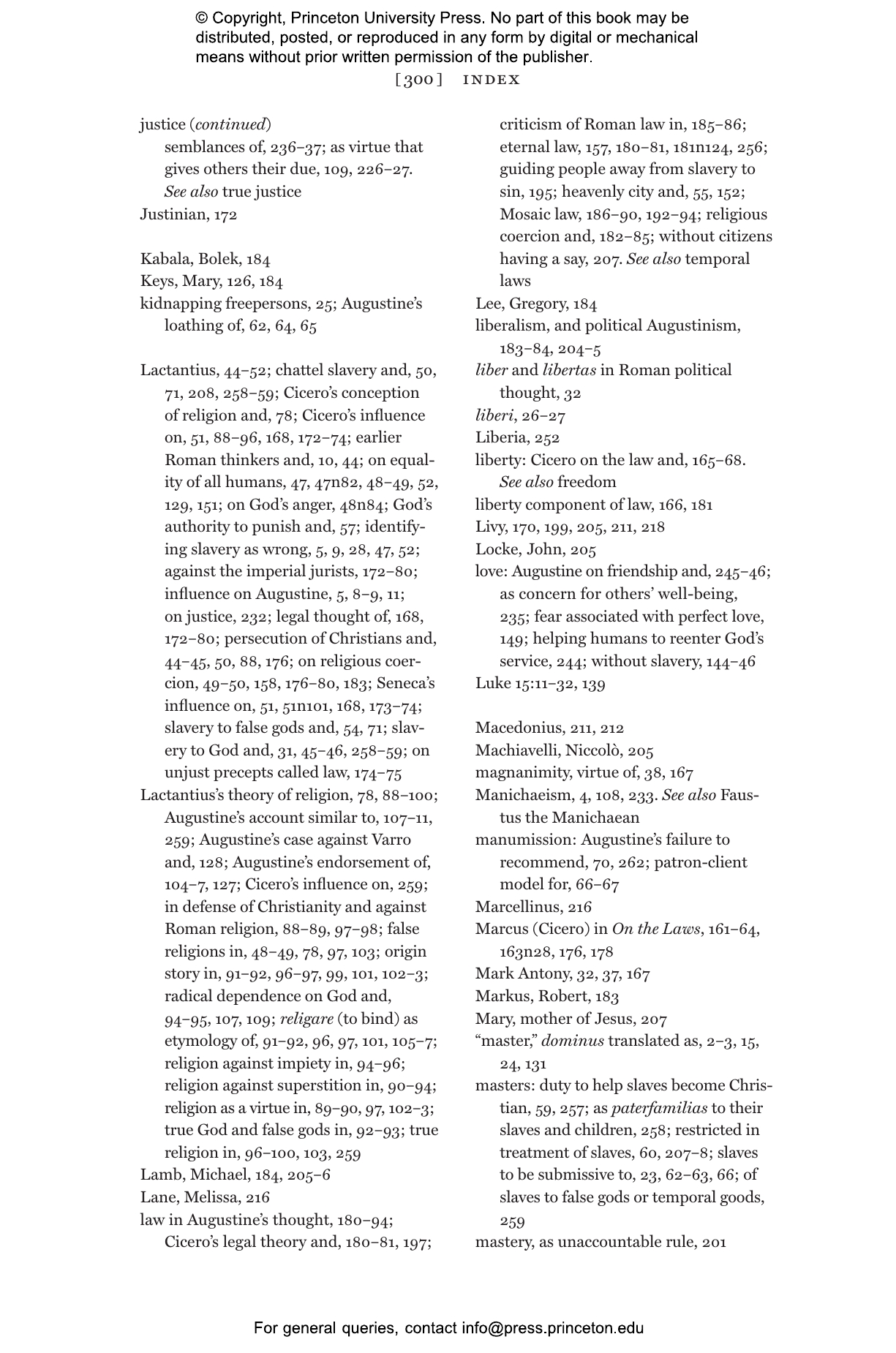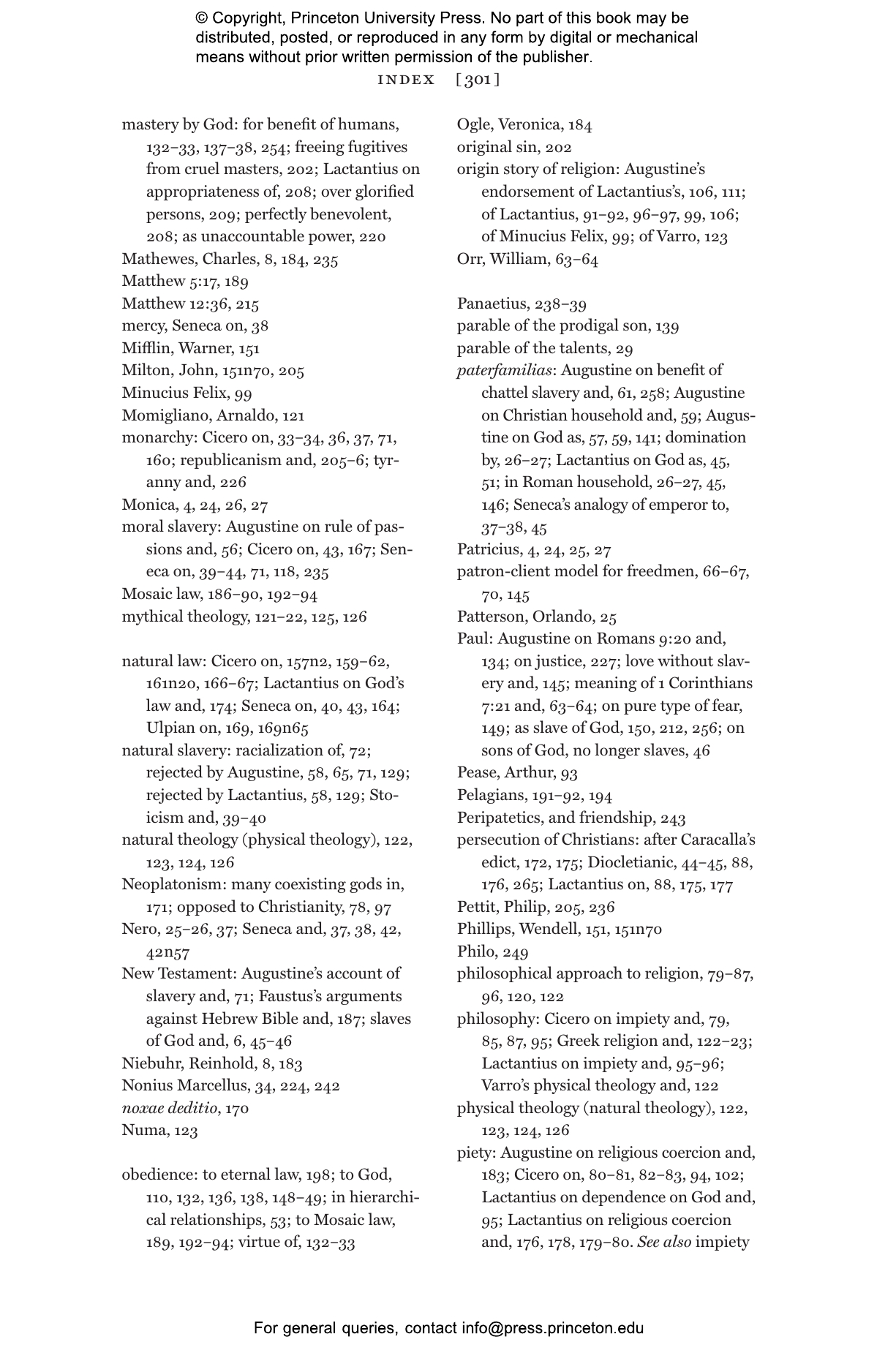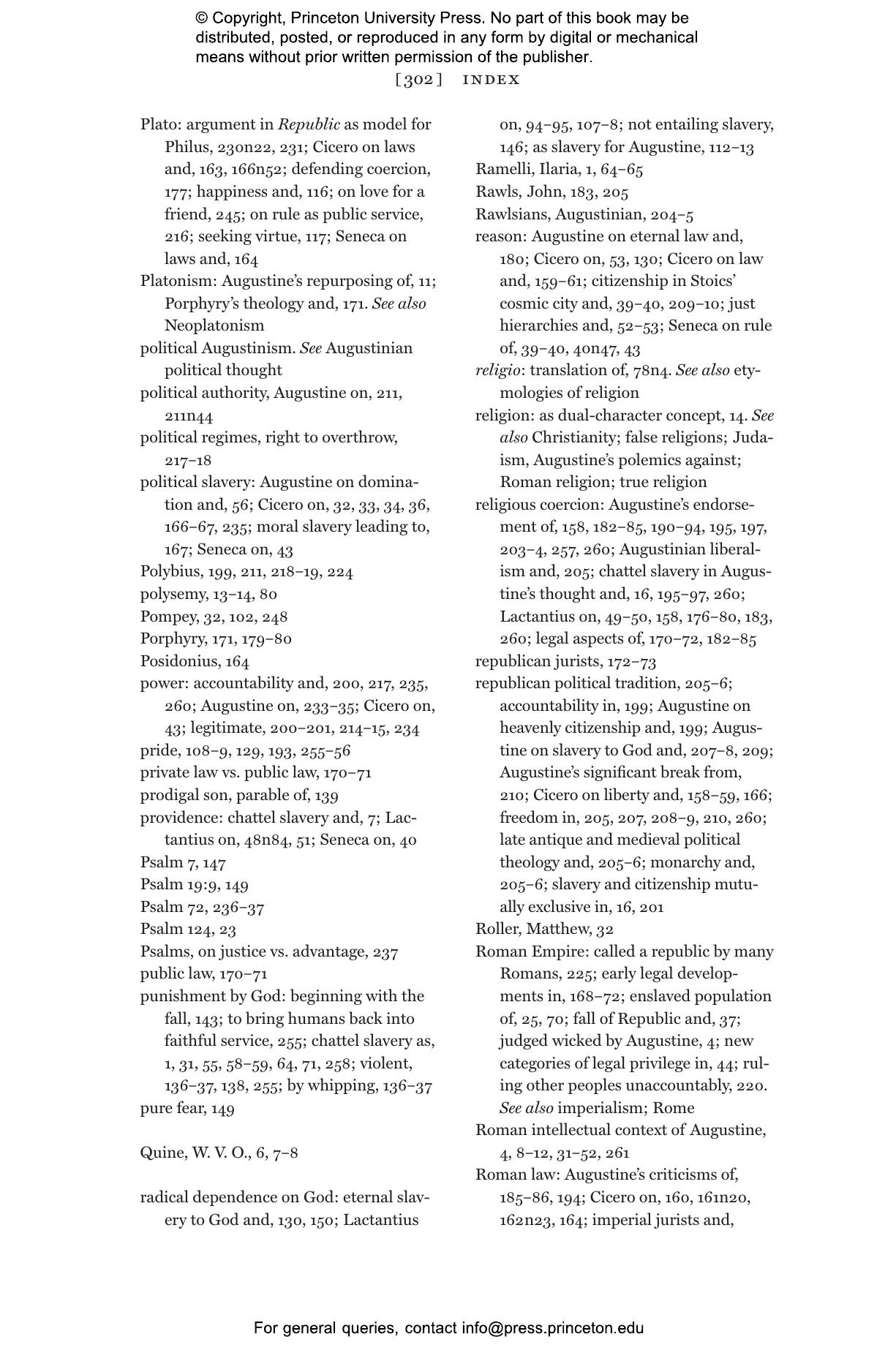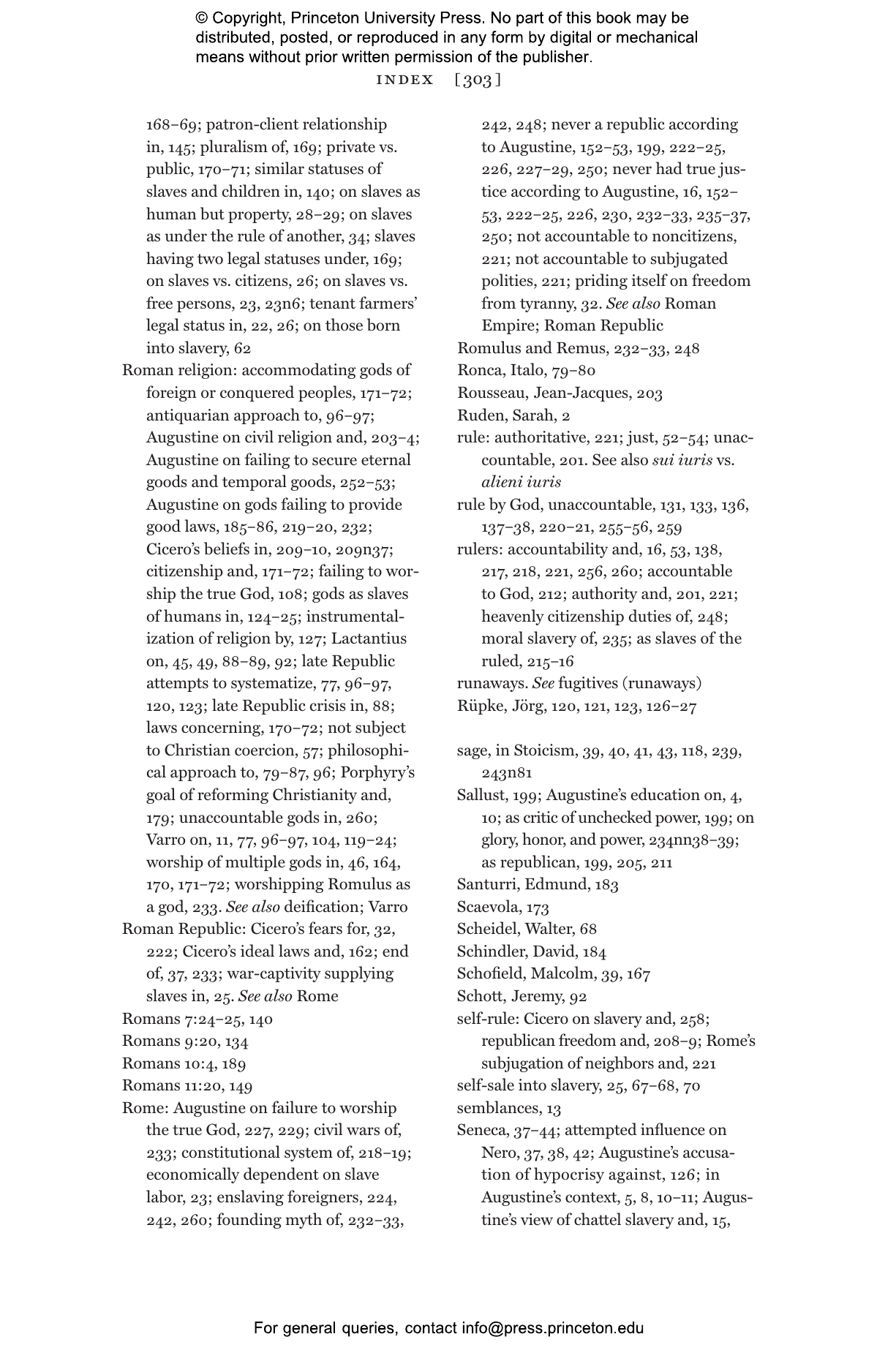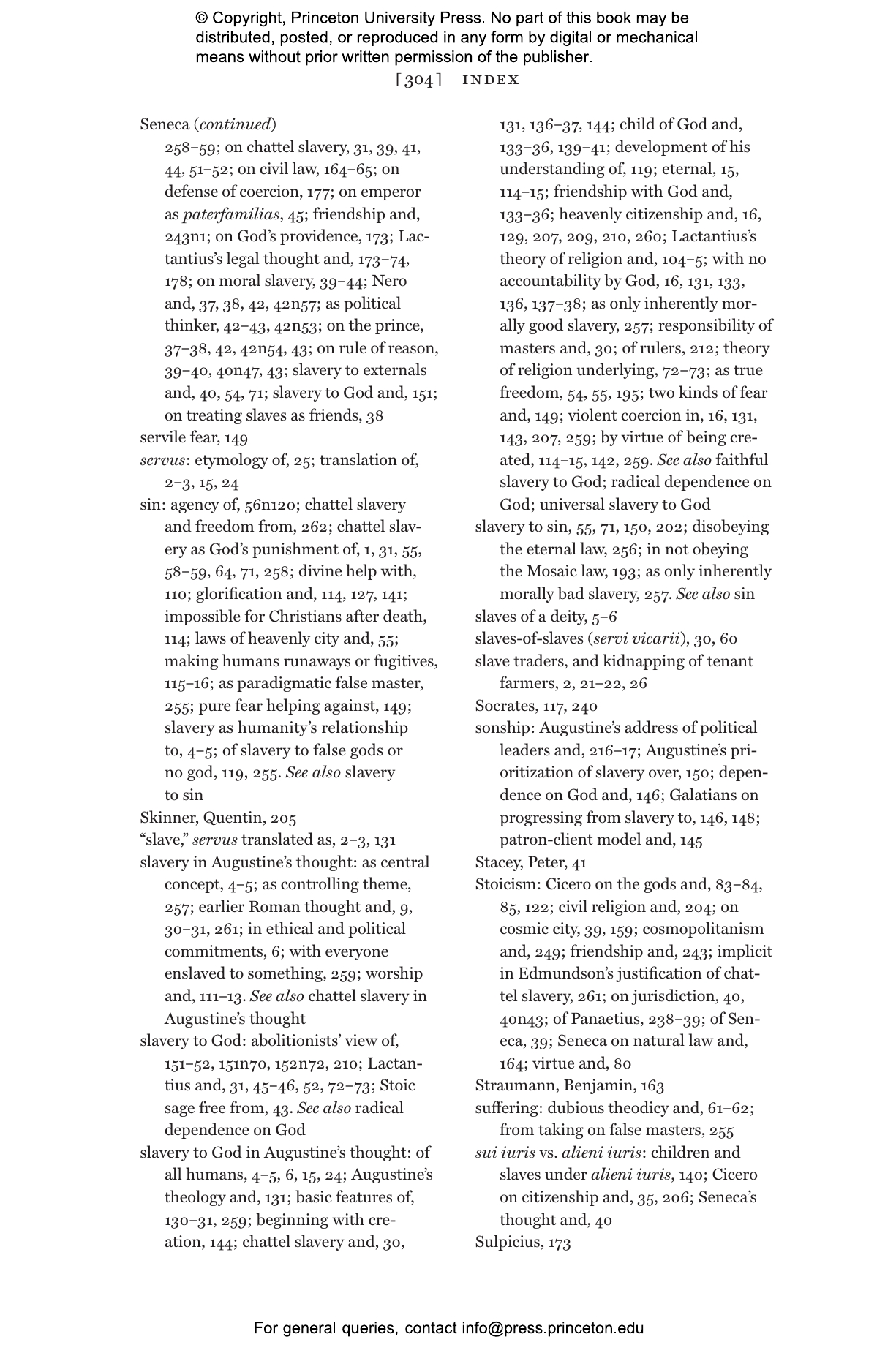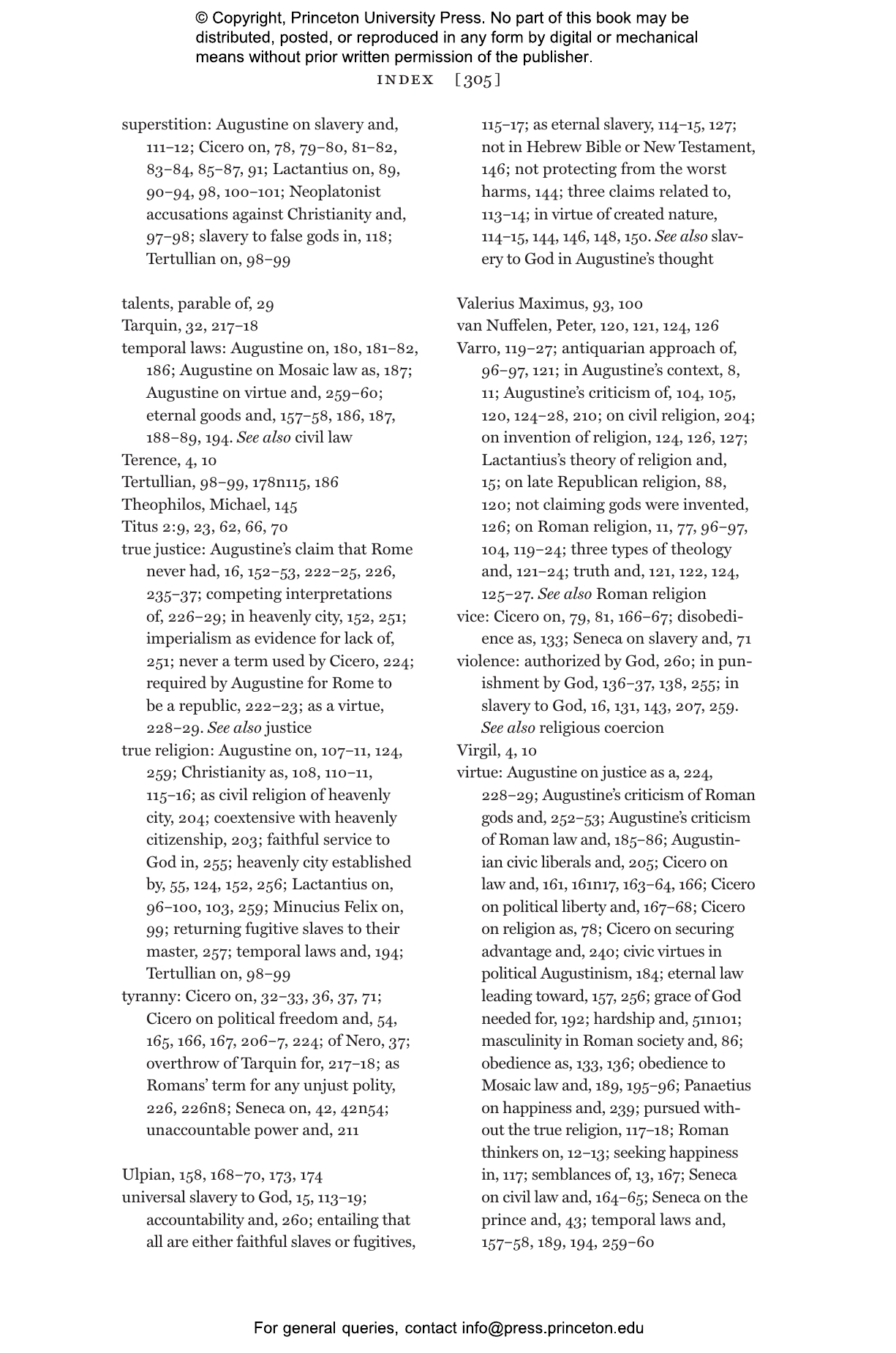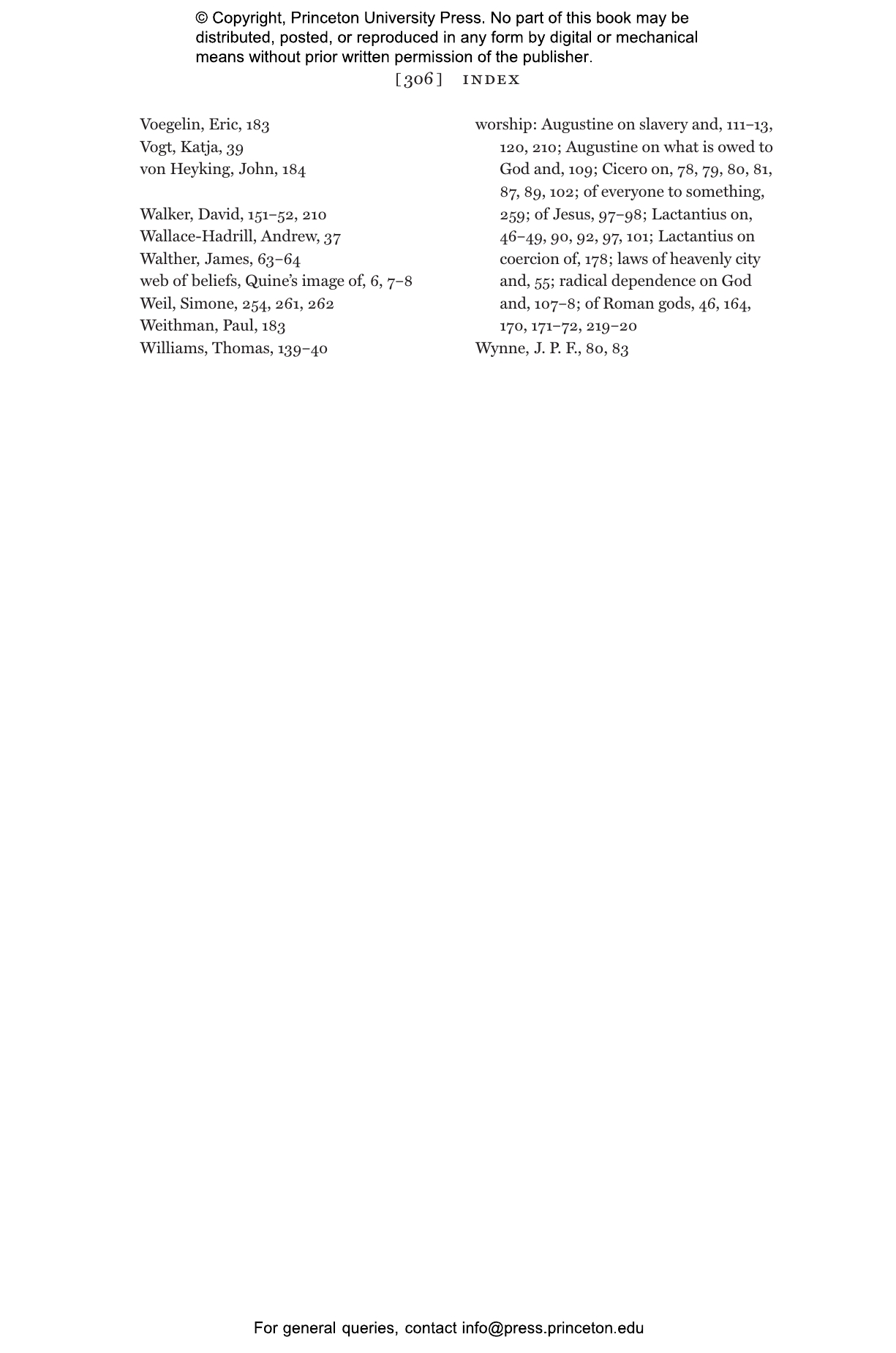Augustine believed that slavery is permissible, but to understand why, we must situate him in his late antique Roman intellectual context. Slaves of God provides a major reassessment of this monumental figure in the Western religious and political tradition, tracing the remarkably close connections between Augustine’s understanding of slavery and his broader thought.
Augustine is most often read through the lens of Greek philosophy and the theology of Christian writers such as Paul and Ambrose, yet his debt to Roman thought is seldom appreciated. Toni Alimi reminds us that the author of Confessions and City of God was also a Roman citizen and argues that some of the thinkers who most significantly shaped his intellectual development were Romans such as Cicero, Seneca, Lactantius, and Varro—Romans who had much to say about slavery and its relationship to civic life. Alimi shows how Augustine, a keen and influential student of these figures, related chattel slavery and slavery to God, and sheds light on Augustinianism’s complicity in Christianity’s long entanglement with slavery.
An illuminating work of scholarship, Slaves of God reveals how slavery was integral to Augustine’s views about law, rule, accountability, and citizenship, and breaks new ground on the topic of slavery in late antique and medieval political thought.
Toni Alimi is assistant professor in the Sage School of Philosophy at Cornell University.
“With penetrating clarity, Toni Alimi traces the ways that the idea of slavery functions and even features in Augustine’s construction of humanity’s relationship with the divine. Slaves of God is a morally lucid examination of this baneful social institution, and of Augustine’s complex endorsement of it.”—Paula Fredriksen, author of Ancient Christianities: The First Five Hundred Years
“Like no other study I know of, Slaves of God relocates the issue of slavery in Augustine from a sideline curiosity to a meteoric threat. Alimi requires of his readers what he requires of himself: historiographical discipline and theological tact. The result is a shared way into the most difficult of issues.”—James Wetzel, author of Parting Knowledge: Essays after Augustine
“With clear, crisp prose, Alimi invites us to confront the logic that led to the permissibility of slavery in Augustine’s thought so that we might better understand his political philosophy and how it shaped the world we have inherited. An important contribution to Roman political philosophy, Augustinian studies, and Christian ethics.”—Jed W. Atkins, author of Roman Political Thought
“Augustine believed that slavery to God was inescapable—and just. Humans could either be faithful slaves of God, or fugitives. And universal slavery to God legitimates chattel slavery. In this rigorous and unflinching study, Alimi reveals how deeply rooted Augustine’s thought was in earlier Roman thought—and how weight-bearing Augustine’s beliefs about slavery were for both his theology and politics. We cannot understand Augustine if we fail to reckon with his abhorrent views on slavery. After Alimi’s Slaves of God, Augustinianism will never be the same again.”—Jennifer A. Herdt, author of Assuming Responsibility: Ecstatic Eudaimonism and the Call to Live Well
